The Literary Arts Magazine of Northern Essex Community College




The Literary Arts Magazine of Northern Essex Community College



The meticulous mass of a year floats coolly in your hands, a tangible morsel of time which held both lavish highs and flustering lows, a pair of semesters worthy of either being pummeled into print or dashed entirely from the public record. Any good book worth its toasted pink sea salt wouldn’t have it any other way, and so it goes: ahoy, and welcome to the 2009 Parnassus .
Fair warning: we hope your gym membership is paid in full, because this particular Parnassus is weighing in amongst the heftiest of them all, a veritable Charles Atlas of literary magazines, giving you the ice-coated, steely confidence to kick so much sand in the faces of so many hum-drum bum poets and vagabond slingers of similes and plodding plots. We advise a brisk round of stretches before attempting to lift yourself through the following pages, which are laced heavily with the charming greed that only the most compelling of literature and art can beg of your attention.
So yes, once more, we offer to our fair-minded readership the most succulent pinnacles and savory summits that NECC’s vast and vaulted creativeminded population has offered up to the eternal judgment of literary immortality. We’ll take them at least as far as the sails that our backwoods little dinghy can carry them upon the seas of post-postmodernist flotsam and jetsam and so forth. We promise a voyage worth rowing along with.
As with most these days, our creative license was slightly stifled by the dense grip of budgetary restraint, but: fear not for our content, as we were graced with a fleet of excellent works, sure to be a splurge of bonbons for your brain. Buckets of thanks to everyone who submitted work over the last year, published or not; every piece counts. To provide a pair of grand shoulders for our selections to stand upon, we reeled in the seaworthy talents of Haverhill native Andre Dubus III, whose literary feats have circumnavigated the globe, captured their proverbial princesses, traversed the titular trails of afar, and landed finally, triumphantly, upon our soggy shores (a short but most welcome leave, to be sure). For his gratuity, we thank him humbly, and we hope your fangs fit neatly into his splendid offering. In addition, we’re quite pleased to whisk amongst you some fabulous selections from NECC faculty member Hannah Larrabee, whose poetry is so piquant, it’ll likely melt off the page before you get there. We urge haste; flip those pages quickly, lest you want a lap full of ink (the dry cleaners can never quite get those darn metaphors out).
So drop anchor for a bit and settle in. If, in your perusal, you find yourself feeling the tug of creativity, don’t let us get in the way. Submit away, and send us sailing on your own work, and next year, the weight of your words might cause us an intellectual charlie horse or two. We look forward to it.
2008
Community College Humanities Association
Winner, Second Place, Eastern Division
American Scholastic Press Association
Winner, First Place with Merit
Winner, Best Gallery
Parnassus Literary Arts Magazine
Northern Essex Community College
100 Elliott St
Haverhill, MA 01830
www.parnassuslitmag.com

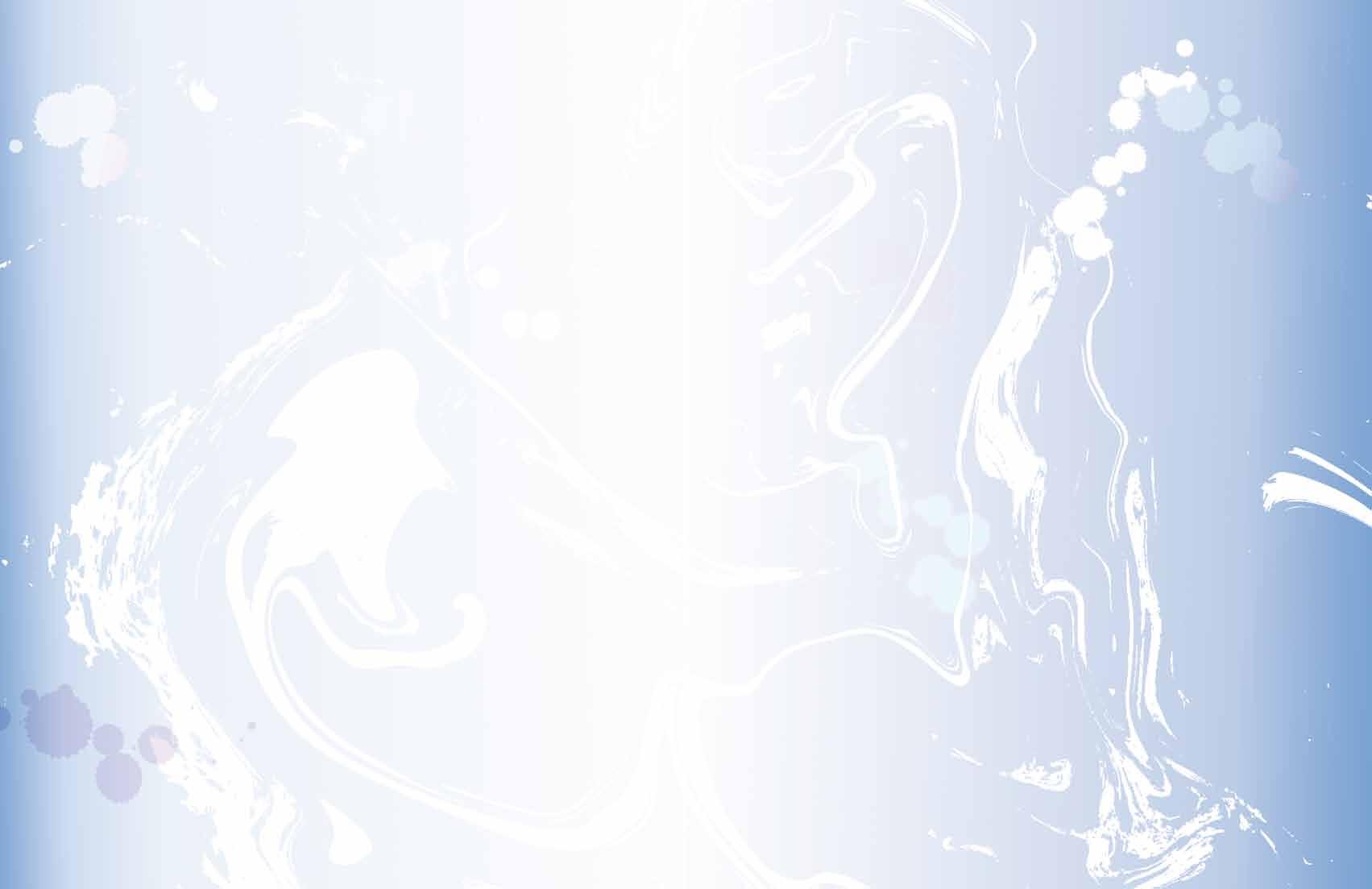
Cover Art h Conrad Fitton
Guest Author - Andre Dubus III
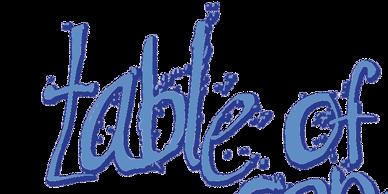
5 Tracks and Ties
Faculty Author - Hannah Larrabee
9 Low Birds
Fiction
55 Dandelions, Mud Pies, and Peanut
Butter and Fluff Sandwiches h Diannely Antigua
59 Devour (or a Lovely Appetite) h Alex Aro
65 Pieces of Glass h Alex Aro
67 Lost in the Past h Merissa Livermore-Johnson
69 To Claim a World h Jay Ryan
70 Questions and Chance Gifts h Bill Reid

Tracks and Ties From Epoch

We had a dollar between us so we sat in a booth at Vahally’s Diner and drank coffee with so much milk and sugar in it you couldn’t call it coffee anymore. The Greek man behind the counter hated us; he folded his black hairy forearms across his chest and watched us take our free refills until we were giddy with caffeine. You went for your seventh cup and he yelled something at you in Greek. On the way out you stole two dollars someone had left on their check under a sugar shaker.
You paid our way on the city bus that was heated and made a loop all the way through town, along the river, up to the Westgate shopping center, then back again. We stayed on it for two hours, taking the loop six times.
In the far rear, away from the driver, you took out your black-handled Buck knife and carved a peace sign into the aluminum-backed seat in front of you. For a while I looked out the window at all the red brick factory buildings, the storefronts with their dusty windows, bright neon price deals taped to the bottom and top. Barrooms on every block. I probably thought of the high school algebra I was flunking, the gym class I hated, the brown mescaline and crystal meth and THC my sister was selling. The bus was warm, too warm, and more
One February morning we skipped school and went downtown. It was ten or eleven degrees and the dirty snow piled along both sides of River Street had become ice; the air made my lungs hurt and our noses, ears, and fingers felt burned, but you wore your faded blue jean jacket with the green magic marker peace signs drawn all over it. You wore sneakers and thin fake denim pants that looked more purple than blue. It was so cold I pulled the rubber band from my ponytail and let my hair down around my neck and leather-jacketed shoulders. Your hair was long too, brown and stringy. My brother, barely fourteen, needed a shave.After the bus, we made our way through the narrow factory streets, most of the buildings’ windows covered with gray plywood, though your mother still worked at Schwartz’s Shoe, on the fifth floor, when she wasn’t drinking. We walked along the railroad tracks, its silver rails flush with the packed snow, the wooden ties gone under. And we laughed about the summer before when we three built a barricade for the train, a wall of broken creosote ties, an upside-down shopping cart, cinder blocks, and a rusted oil drum. We covered it with brush, then you siphoned gas from a Duster behind Schwartz’s and poured it on. My brother and I lit it, air sucked by us in a whoosh, and we ran down the bank across the parking lot into the abandoned brewery to the second floor to watch our fire, to wait for the Boston & Maine, to hear the screaming brakes as it rounded the blind curve just off the trestle over the river. But a fat man in a good shirt and tie showed up at the tracks, then a cop, and we ran laughing to the first floor where we turned on the keg conveyor belt, lay on it belly-first, and rode it up through its trap door over and over. As we made our way through town it began to snow. My brother and I were hungry, but you were never hungry; you were hawny, you said. One morning, as we sat in the basement of your house and passed a homemade pipe between us, your mother upstairs drunk on Kappy’s vodka and Pepsi, singing to herself, you said:“I’m always hawny in the mawnin’.”
My brother and I laughed and you didn’t know why, then you inhaled resin on your next hit and said, “Shit man, the screem’s broken.”

“The what?”
“The screem. You know, the screem. Like a screem door?”

Guest Author au
By the time we reached the avenues the snow had blanketed the streets. There were two sisters on Seventh who lived in the projects that always had motorcycles in front of them, and trash, and bright-colored babies’
toys. Trish and Terry were older, sixteen and seventeen and so skinny their breasts looked like prunes beneath their shirts, but they had dark skin and long hair and sometimes, if they were high, they’d suck you. But there was a day party on the first floor of their building, and it had only been two weeks since Harry Wright and Kevin McConigle, rent collectors for Fat Billy, both twentythree or -four, beat us up, you and me, just walked us out of a pot party we were both quiet at, walked us off the front porch into the mud then kicked and punched us until they were through. So we kept walking, heading for a street close to the highway where we knew three girls who would fuck if you had wine and rubbers, though after the wine they didn’t mention the rubbers.
On Cedar Street, cars spun out snow as they drove from the curb or the corner store. You let out a yelp and a holler and went running after a Chevy that had just pulled away, skidding slightly as it went. You ran low, bent over so the driver wouldn’t see you, and when you reached the back bumper you grabbed it and squatted on your sneakers, your butt an inch or two from the road. And you skied away, just like that, the snow shooting out from under the wheels of the car, out from under your Zayre Department Store sneakers, blue exhaust coughing out its pipe beside you.
In the spring and summer we hopped trucks. A mile from the highway was a crosswalk on Main with a pushbutton traffic signal pole that we three leaned against until a truck came along and one of us pressed the button to turn red. I was the decoy that day, for a white refrigerator truck from Shoe City Beef. It stopped at the line, and I crossed the street jerking my head like a chicken to keep his attention from the mirrors while you two ran around to the back and climbed up on the foot-wide iron ledge at the bottom of its rear doors. As soon as I got to the sidewalk I heard the driver shift from neutral to first, heard him give it the gas. I waited for a car to drive by from the opposite direction, then I ran out into the street behind the truck, which was only shifting up to second. You and my brother stood on the ledge waiting, smiling, nodding your heads for me to hurry. I reached the ledge just as the truck moved into higher gear and I grabbed the bolt lock on its back doors and pulled myself up, the truck going faster now, shifting again, dipping and rattling through a low spot in the road. You both held an iron handle on opposite sides of the door so I stayed down, gripping the bolt lock with both hands, sitting on the ledge. A car horn behind us honked and the driver, some
man who combed his hair to the side like a teacher, shook his head and honked his horn again. You gave him the finger and we laughed but it was a scared laugh because the truck wasn’t slowing down as it got to the gas stations and Kappy’s Liquor near the highway, it was speeding up. Before, we’d jumped off into the grass of the highway ramp, but now we couldn’t; he took the turn without leaving third gear and you yelled: “He knows! He friggin’ knows!” My brother wasn’t smiling anymore, and he stuck his head around the corner and let the growing wind hit him in the face, run through the hair on his cheeks as he squeezed the handle with both hands and I wanted to stand, to get my feet on something solid, but there was no room and now the driver was in fourth gear, heading north on 495, going fifty, then sixty, then sixty-five. He moved to the middle lane and I tried not to look down at the zip of the asphalt a foot beneath my dangling boots, but it was worse looking out at the cars, at the drivers looking at us like we might be a circus act they should catch sometime. Some honked as they passed so I looked up at you, at the side of your face as you looked around the corner, the June wind snapping your hair back past your forehead and ears, your mouth open in a scream I could barely hear. You smiled and shook your head at my brother then down at me, your brown eyes wet from the wind, your cheeks flushed in a satisfaction so deep I had to look back at the cars behind us, at the six or seven I was convinced would run me over one after the other, after my fingers failed. Miles later, at the tollbooths of the New Hampshire line, the truck slowed to a stop and we jumped off exhausted, our fingers stiff, and thumbed home.
That fall you went to the trade school, my brother joined me at the high school, and I saw you six years later in an all-night store in Monument Square. I was buying cigarettes for my college girlfriend. She waited in the car. It was winter. The floor was dirty with people’s slush and mud tracks, the overhead light was fluorescent and too bright, and I was waiting my turn at the register when I saw you, watching me, smiling as you walked up. You carried a carton of ice cream and a quart of Coke. I had on a sweater and a jacket but you wore only a Tshirt, green Dickie work pants, and sneakers. You were taller than me, lean, and your young black mustache and goatee made you look sinister until you started talking in that high voice that hadn’t changed since you’d told us you were hawny in the mawnin’. You said you were living down on the avenues, that you were getting married soon. I said congratulations, then I was at the counter
uoasking for a pack of Parliaments and you touched me on the shoulder, said to say hi to my brother. I said I would. At the door I glanced back at you and watched you dig into your front pocket for crumpled bills. You nodded and smiled at me, winked even, and as I left the store, the cold tightening the skin on my face, I remembered the time your mother went to visit her sister in Nebraska for a whole month. I could never understand why she went alone, why she’d leave her family like that to go off for a visit. Then my mother told me it was detox she went to, some twenty-eight-day program in Boston. When I told you I knew, you laughed and said, “Nah,” but you swallowed twice and walked away to do nothing in particular.
Six months after I saw you in the store my brother and I got invitations to your wedding. We didn’t go. Four more years and you were dead. I heard about it after you were buried. They said your wife stabbed you in the back. That was it; she stabbed you. But a year later I was behind the bar at McMino’s Lounge and Fat Billy’s son, Bill Jr., told me what really happened, that you were cooked, always thinking your wife was cheating on you, always beating her up. That night you ran outside off the porch to go kill the guy you thought she was fucking. This was down on one of the avenues, behind the projects, and you took the trail in back of your house. But your wife opened your blackhandled Buck knife and chased after you, screaming. She was short and small, barely five feet, and just as you reached the weeds she got to you and drove it in low, sinking the blade into your liver, snipping something called the portal artery. You went down without a sound. You curled up in a heap. But your wife spent four hours at a neighbor’s house crying before they called anyone, and then it was the cops, and you were gone.
I served Bill Jr. another White Russian and for a second I felt sure it was him she went to that night, and I thought about hitting him for not making a faster call, but I felt no heat in my hands, no pull inside me. And I’ve always hated woman beaters. Part of me thought you got what you deserved. I left Bill Jr. to finish his too-sweet drink. The following winter I was living in New York City, in a one-room studio with my girlfriend. It was late on a Sunday morning and we both sat with our feet up on the couch reading The New York Times . Outside our barred window snow fell on parked cars, on the sidewalk and street. I got tired of the movie section and picked up a story about three women in prison, all there for the same reason, for killing the husbands who beat them.
And your wife was one of them; they gave her full name, your name. They wrote how she chased you outside and stabbed you. They described the town you both lived in as economically depressed, once a thriving textile town but no more. I lowered the paper and started to tell my girlfriend all about you, but she and I weren’t doing so well, both past wanting to hear anything extra about each other, so I pulled on my boots and jacket and went walking. I crossed Third Avenue and Second and First. A car alarm went off in front of some Chinese laundry. I stuck my hands in my pockets and wished I’d worn a hat. I passed an empty basketball court, then I waited for the traffic on FDR Drive and walked the last block to the East River. To my right and left were bridges over to Queens. Though from where I stood I could see only the backs of warehouses, dry weeds five feet tall, then the gray river, swirling by fast. The snow had stopped and I started walking along the cobblestone walk. One morning I skipped school and cut through backyards to your house. I didn’t know your mother was home from Nebraska and I almost stepped back when she answered the door. She’d dyed her brown hair black, she wore sweatpants and a sweater, she had a cold sore on her bottom lip, and she’d gained weight, but she smiled and kissed me on the cheek and invited me in. The small kitchen was clean and warm. It smelled like coffee and cinnamon rolls. She put one on a napkin and handed it to me. I thanked her, and while I chewed the sweet buttery bread, she lit up a cigarette and asked about my mother. Then you came downstairs in just your jeans, no shirt, your chest pale and thin, your nipples pink, and your mother rushed over and kissed and hugged you like you’d been gone and just gotten home. And you didn’t pull away, you hugged her back, and when your eyes caught mine, you lowered your face into the hair at her shoulder, and kept hugging.
Hannah Larrabee
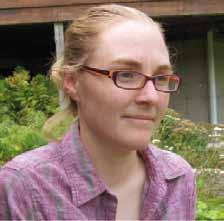
9 Guest Author
Low Birds
Early morning, and runners too start from the ground, feet lifting and landing, leaving no trace of themselves, no indication of where they are going. With each day, comes a desire to move, to make a home of anything we might find: a daily nest. It is a kind of fluttering, to find happiness in what can be touched, then rise to air: at once everywhere, and belonging to no one.
ot
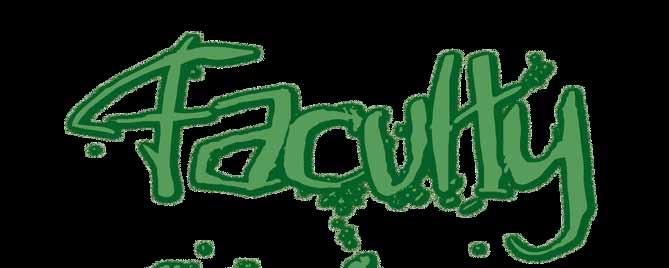
Bar of Soap
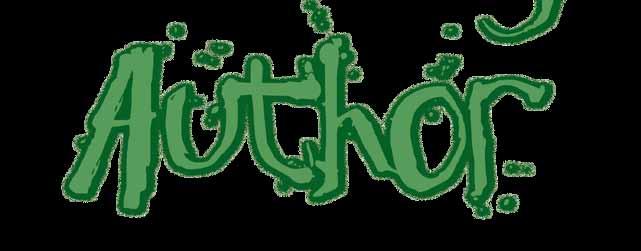
For a bar of soap. It touches my body daily, Asks nothing in return. There have been few times When I have held it beyond its simple measure.
My most recent tiny friend, started to wear on one side. I couldn’t understand it. It collapsed on the left, The right side untouched, and everyday it drew into itself, Like a galaxy shrinking toward a black hole.
All of this in a bar of soap. Its last duties fulfilled, I tossed it into a trash can with a touch of sadness.

In the Streets
Of the Sybil City
The heroin streets
Sucking the color out
Of the faces of the girls
Working the streets
Caught
Unawares
Napping
On a warm peaceful August afternoon
To buy crack. Their escape?
Pushing them
Their sunken eyes
Deeper into the prison Death Row.
A still afternoon
In pre fall
The men in shirt sleeves
In the park
Playing Backgammon
On the card tables.
The sun warming their faces.
The sirens
Shatter
The calm
The blue lights
Like cold blue steel penetrating The calm.
The life draining
From the young tough.
A drug deal gone bad?
In the shadow of The Community College Class
Learning Crime scene clean-up
And the children
Pushing and shoving at the bus stop
Burdened
Their backpacks full of opportunity
A sudden turbulence
Cold rain
Chilling my neck
To the bone
I turn my collar up Walk away from the cold
What caused this change In the weather?
Relegated to irrelevance, Like the phone booth Once so important. Once a strong standing icon
To his family
Running out of dimes ‘til The signal fades, The line goes dead. The only long distance The hollow look of far away eyes Suffering in another dimension. Dementia.
Having lost his connection Long before the end
All that was left
The years of slow Relentless rusting
Thomas
FOR LEASE
HUMVEE
P. AntoneCustom Desert Sand Color
Low miles but hard miles
Still runs, but getting tired
Many new parts
Interior completely HAZMAT cleaned
Some damage
Holes along the driver’s side body
Dents on the front end
Missing bumper.
Does not have Alloy wheels
GPS
Air-conditioning,
DVD Or navigation system Or Armor.
New car smell
Price determined at the end of the contract.
(Somewhere between one year of your life and the ultimate price)
Located in Anbar Province
Call 1-800-E-N-L-I-S-T
Hunter Comack
Once a dream
She kissed me In the snow
Beneath the light
Once a dream
She held my hands
And warmed them In the night
Once a dream
She danced with me
Two figures In the wind
Once a dream Our bodies touched Two lovers
Old Fashioned
Hunter Comack
My shadow boy
My guardian angel
My little brother Steve
We played together in the mist
But now it’s time to grieve
I held you once I held you twice But both times not the same I held you in the morning sun I held you in the rain
But now you part And now you leave And one thought it does grow I cannot hold my shadow boy In the silent falling snow
Hunter Comack
She hugs me
Then she hits me
She hits me ‘til I bleed
I love my sister Beatrice
If only she agreed
She confides in me
She yells at me
She yells at me in hate
I love my sister Beatrice
If only she’d abate
She leans on me
She runs from me
She runs from me away
I love my sister Beatrice
If only she would stay
She needs me
But she hates me
She hates me… I confess
I love my sister Beatrice
If only she could guess
To remember a night very much alike to the one you peer at now
Except now you wait for a very different ending to the old familiar story you had once been told. Maybe you have lived the scene in a previous time, vaguely holding to its truth, now lost in a daze as thoughts flood overwhelmingly.
The air smells like smoke, fire, and blizzards; of trouble and excitement- or maybe so you think, or maybe so you wish — for chaos and confusion is a step out of the ordinary, a twist or turn unexpected in a plan that had been well controlled and drafted in its creation.
Repetition is a killer.
It is a storm forging and it travels fast, biding its time and gaining the strength of nightmares a thousand-fold, holding them restrained in its primordial grasp.
You pray for rains that are slow to come, but they may just hear you calling. Perhaps they hide and plot for a night just like this one- a night where no one else but you can see the haze drifting on a breeze that brings a smell that only you can taste;
one that excites the nerves.
You can nearly hear the thunderheads approach but they say nothing, staying as silent as they have been, furthering your feelings of anticipation and isolation.
You ask or tell the others how strange this night is but they move on neither hearing or understanding, and most uncaring
Like phantom friends in eclectic dreams that can’t comprehend anything you say, always fading when you awaken.
It is a transitory phase that you make yourself believe will soon be over. Ironic, now, another tells you of the drizzle that falls invisible but of course now you are the one who cannot see or feel it.
The upheaval may just come soon; an invited tempest.
For now it is the calm before the storm. It may bring about your salvation or it might herald your downfall. The only thing you do know—
It will leave all devastated in its passing.
Shapes twist, contort, and incite my mind
Half-seen shadows that move in the peripheral
Become mockingly still when stared at or questioned
The voices made for only me to listen
But the laughs surely someone else must hear
Distrusting eyes, nervous smiles, raw finger-tips
Ominous threats mutated from friendly words
Spiteful phantoms anchor in the distance
Mirages, malignant and chaotic
Someone is waiting for me but they aren’t human
I saw my downfall in the girl’s smile
And it was a welcome embrace
She laughed at me when I told her about the skies
Of invaders that are just above the ephemeral clouds
I’m the only one who believes me
Augmented reality- at least I’ll never be alone
Who can tire of such animated landscapes?
Rooms filled with invisible lightning
Highways coursing through unseen fire
Vanishing corridors of instantaneous floods
And quakes that rumble silently and unmoving
It’s the insipid strangers I care nothing for
Mechanical beings that serve the purpose of filler
As fake and unreal as the demons that inhabit my brain
No depth, fleshy vacant vessels that react
I can’t be the only one who feels asleep
Maybe once I’m awake I’ll find what I’m missing
If I’m asleep have I lost something?
Comic relief dashes my attention to other thoughts
Things that aren’t there make me laugh
Things that wouldn’t, couldn’t, and will not ever happen
A partisan purpose or an uprising dream
Something rebellious and meaningful
Sparks to ignite, the starting embers of a cause
I want to be an Incendiary
Walk among the rebels and radicals
Die for a revolution yet to come
Rather than live a meaningless existence now here
Be an unheard of zealot not a fraudulent hero
I will walk proudly to the gallows wearing the label I was given.
No one will know my name but me
Natasha Sudiaman
You… Complicated paradox waiting to be solved I will solve you as you solve me
We connect like tiny pieces of jigsaw I am locked and stowed away behind the shadows You are the light of revelation
Pull me out and throw away the key I no longer reside there
You…
Failed attempts that conjure lessons for the willing You will be off to do great things
Your wisdom will spread like celestial wild fires And I will watch you inspire millions I will watch you save their lives
You…
Curious cat that is dying to know me
I will be seen clairvoyant in your eyes soon enough Please do not fret, my feelings ring true
The good you believe that is in me is existent And it grows stronger with you by my side.
Timothy
MitchitsonThe end of a cigarette shivers in fear as the flame dances around it, sparking life of vicious burning embers
The world, as it is tonight, is such a sight to see standing where trying trees collide with fractured asphalt planes
Listen to the laments of long nights of nothing restful, or sweet, worry, burden the heart, and dampen the verve as they echo in your head
Lurching leaves on the fingertips of twisted trees tremble in the breeze shattering crystal eardrums in their dissonance
Taste the bitter desire to transcend consciousness as the howl from the night child breaks the quiet calm of moonlight wanderers wailing amidst the moans of a distant passing train
Unboundedly, I chase far-away dreams of heavy nights, heightened perception, and wild moments of infinite wonder and elusive ecstasy
You can’t wrap dreams up in paper, drink them with some sweet intoxicating nectar, or breathe them in with long arduous breaths of dead air
These dreams, which plague our thoughts from dawn to dusk, can easily get lost among the blinding, fast moving lights and deafening, mind numbing sounds, slipping silently into the cracks and gutters of Downtown Pay heed to these dreams as distant as they seem, for if you let go for even just a fleeting moment, they will slither and slip from your grasp or cast off towards the sky to soar
When the world seems a posterized portrait of something wild and wicked destined for a doom you yearn to know about, it always just rains when you wish it would pour.
It’s a lock, moments crypted past me blinding down a long corridor
What now peers along is no more a seamless paradise than a boundless groomed blade
Now lurks in silence, bottled tight with images of rot steel battles and black cornered brawls
Victory sliced thin against bottomless obscurity left now with only fevered echoes of these calls to war
In your favorite chair you sit motionless, wrapped in a blessed shawl. Leaning to one side, your head droops low. I hold your hand, so frail and bony, Your green bathrobe, stained of coffee, scented of talcum powder. Your ankles shaped like pears and your skin, once pale white, now, tainted yellow. I whisper, take hold of me, please, But your grip is weak. You slip away. Alongside you, I have not wandered far, Still holding onto you. I try to remember everything, every little moment of you. Wishing I could make one more memory with you... mother.
Jade Scarpa
Miss Mary Mack all dressed in black The silver buttons down her back They ran like tears ran down her face But on her spine they made their place
Oh have you seen what I could do
To mend that heart you tore in two Your fragile lies will fall in place
While sewing smiles to your face
Once upon a time my smiles filled an empty landscape, watching the tide roll out with the seagulls flying over head their cries illuminating the empty bay.
I climbed the rocks of islands, their rough texture scratching my knees, causing my feet to slip over the seaweed. I would breathe in deep, the smell of ocean assaulting my nose.
Fingertips touch forehead, Fused together, Straightened, Stiff.
My fingers are bent crooked, Knuckles protruding, They cannot lift The weight of my gluttonous fingers, Starving to reach into the depths Of this world parked right outside of here, The world you all have left. And I am sorry, Mother Mary, For this tangled web I’m in, A fly in threaded art of truth and lies, In this tangled web of sin.
I would catch the small green crabs. Their claws clicking and their tiny little mouths making popping noises in protest as I tossed them into a net.
I would drink Brisk iced tea, the taste flowing over my tongue, refreshing my body as I climbed higher to watch the tide come back in.
My great grandfather was alive and I would play in the mud, on the rocks, in the seaweed, and run back to his trailer happy to have the time in the bay, content to be in northern Maine.
Once upon a time
I was always smiling, always laughing. Everything was innocent, different. The seagulls cried, the crabs moved, and I was the tyrant in charge of them all.
William Leith
We sip, we enjoy, as a thousand lights beam down. Laughing in cold air.
William Leith
red leaves live as they dance around me, my walk will be longer today
Lexie Hart
Imagine… Can You?
Why we Dream? Why we avoid Reality? Here, Our Lived are Hidden Just simply Satisfying Swimming under Silky White Sheets Living within these Dark Walls Staring
Deeply into the Eyes of the other No one is here to Watch No one here to Listen No one…
But the shadows Dancing along florescent walls
Our Secrets are kept Safe Safe from unnecessary Criticism We are up against the World Fighting with Hope Believing, Not only in the simplest Ideas But what we may come to Never Understand Lying awake As Passion builds I’d Live for This I’d Die for This Thinking… Can this, Will this, Ever be as Perfect as we Imagined?
Zamira Cano-Aliaga
As a child I played endlessly outside
With the critters and the bugs and the birds that fly. No one could take me apart from the trees
They say they were magical at least to me
I climbed every tree I could find
Hanging from the limbs of time
Thinking if I fell I’d die
But I’d die with the utmost joy in my life
But I never did fall from the tree
I’d slip and scream at times
But fate always rescued me
In the nick of time
And when it did I smiled with a grin
The rush was exhilarating, possibly a sin
Those were the best times
Merely a child climbing the tree of life
Ralph
BasilereThe late winter snow lies like a blanket — soft and rippled upon the rolling field. A hanging sun dominates the western blue, coloring russet limbs light blond. Few birds occupy the surroundings that is speckled with ice skaters, lovers, and walkers.
Lower and lower slips the sun on the fading breeze; the peace of the hour is palpable — slipping. The treetop reflections are a golden chain around the lake that fasten a large collection of the cherished. It strikes me that snow blocks flowers, bees, grass –like the forces that claim great love.
Music on the radio is a wallpaper of notion
“leaking life faster than I’m leaking blood…”
Before me this afternoon are places, where child’s play, laughter, and a soft voice dwells. The sun is sliding — shadowing the treetops as brown as their trunks — the middles are yellow.
A freckled shadow recurs of a man in black, white — holding a porcelain doll who wears Mommy’s ring. Aloft, hot pink clouds expand to scarlet, orange, gray — wisps that underscore continuous change. The reflections spark longing… her soft red hair adrift moist evening clover. She’s beautiful inside.
The sun has nearly sunk behind the hill, and the radio begs: “Did you come here to play Jesus to the lepers in your head?”

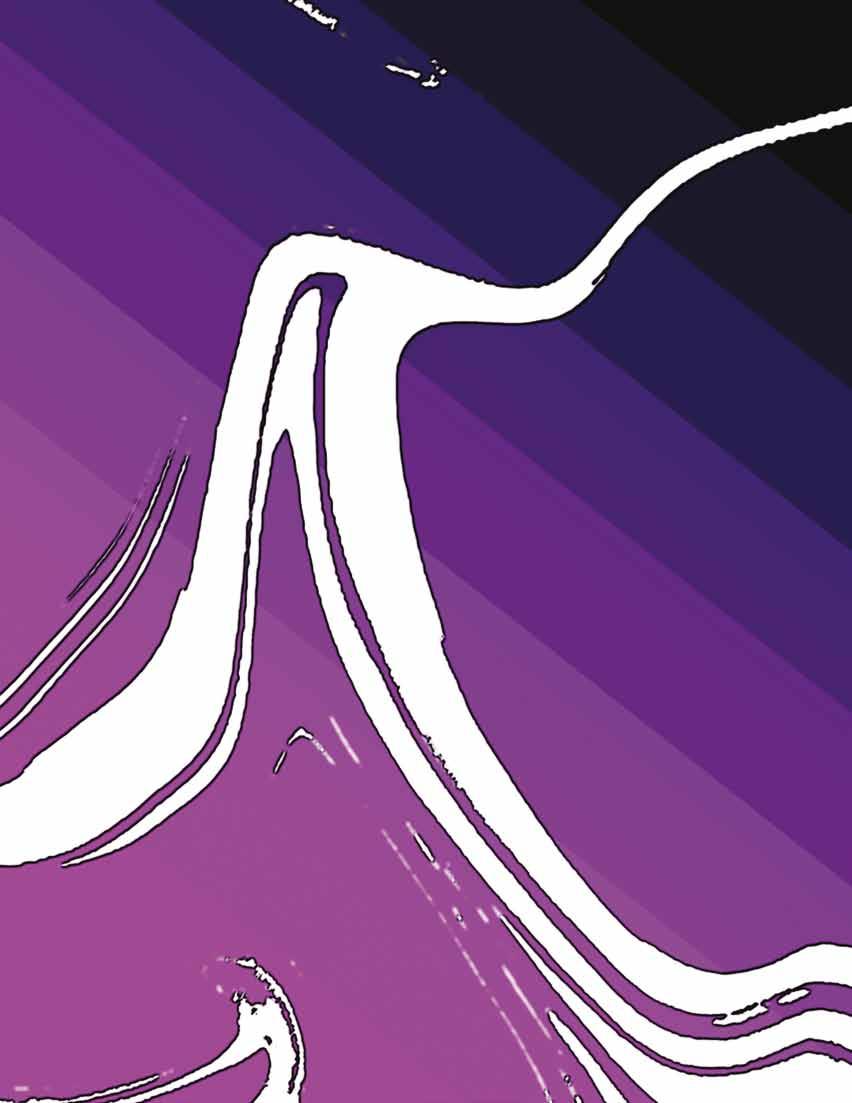
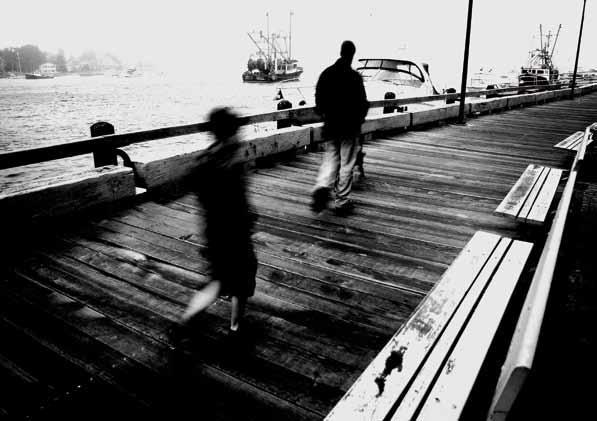

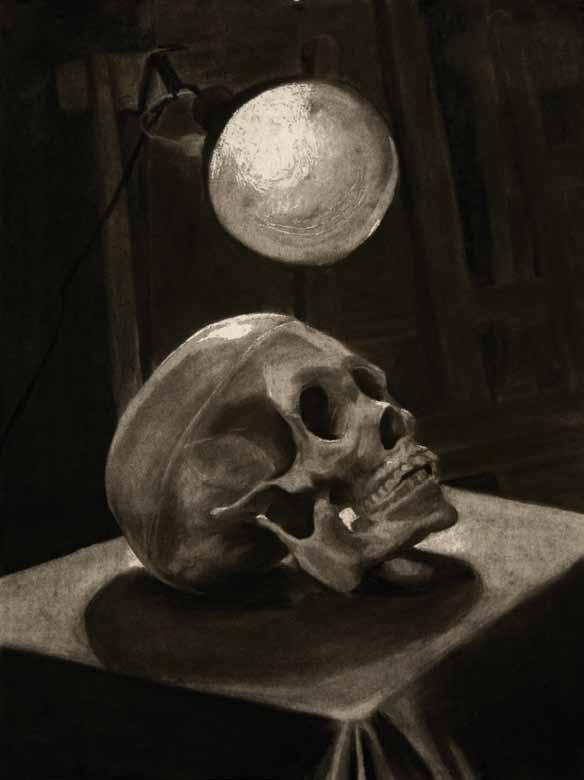

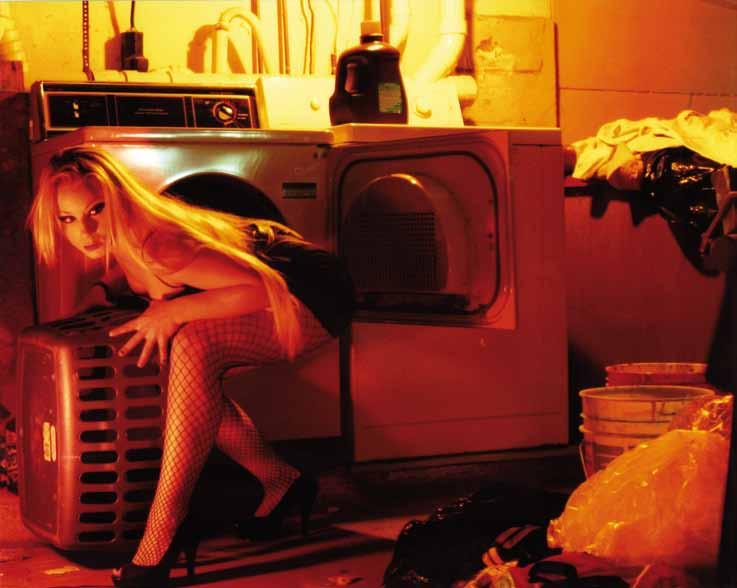
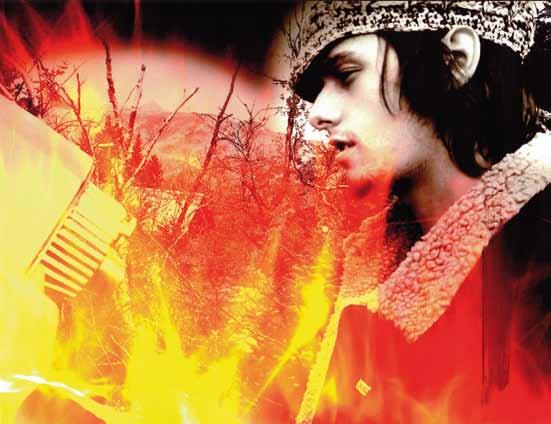
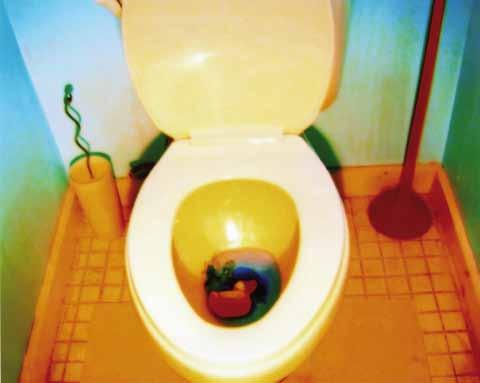
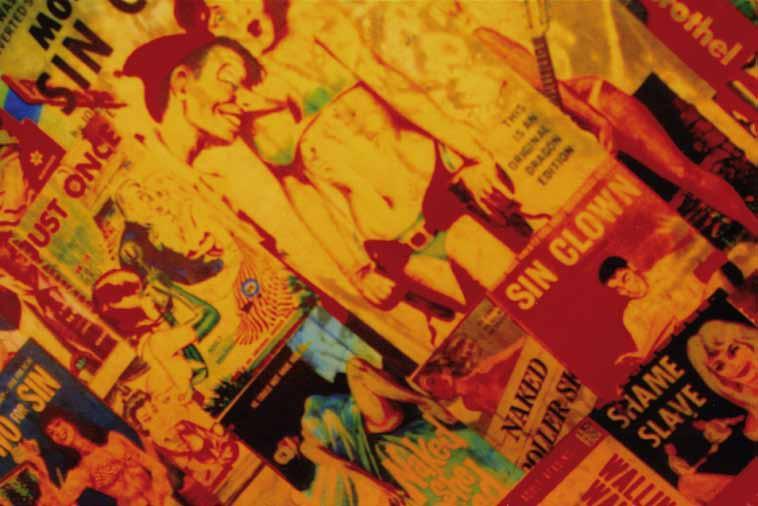

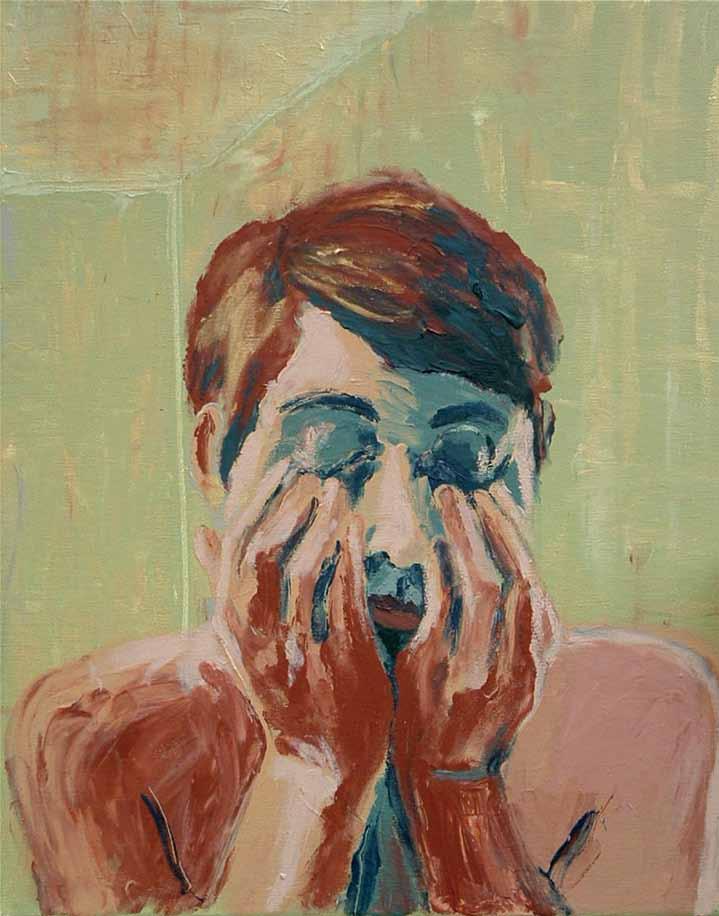
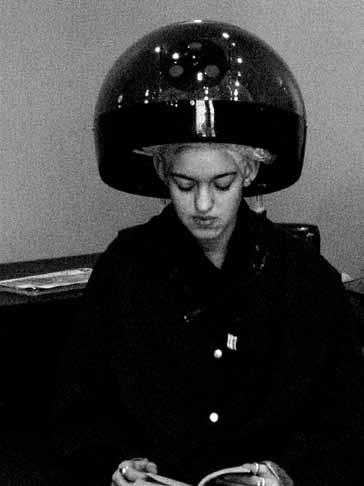

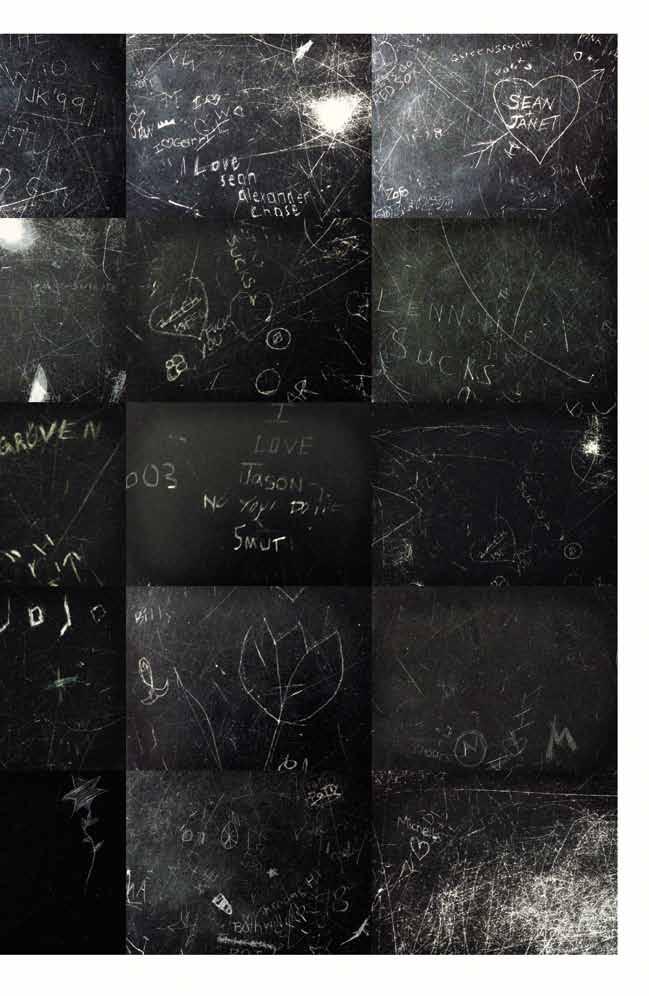




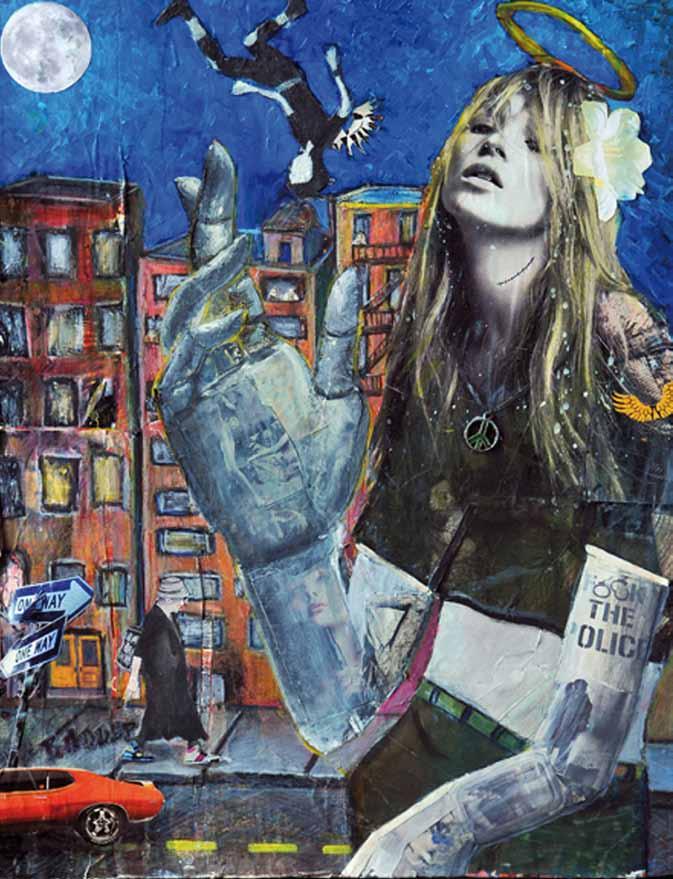
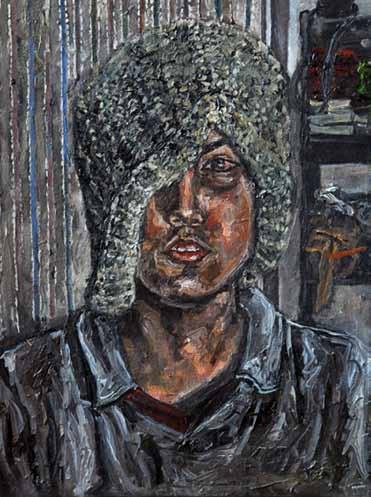
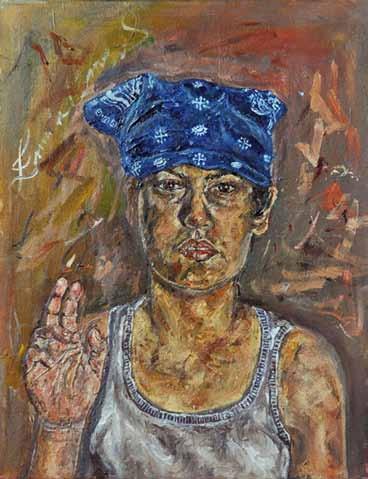


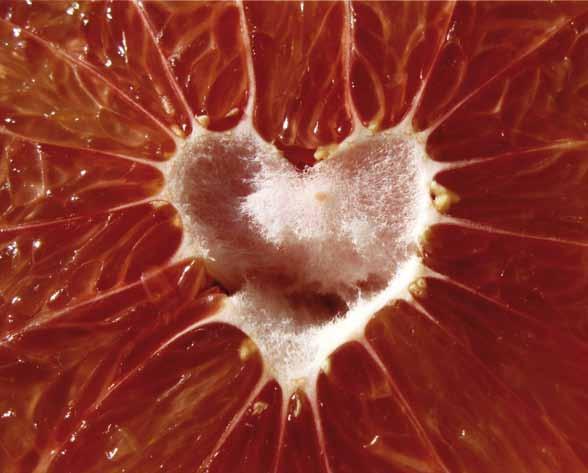

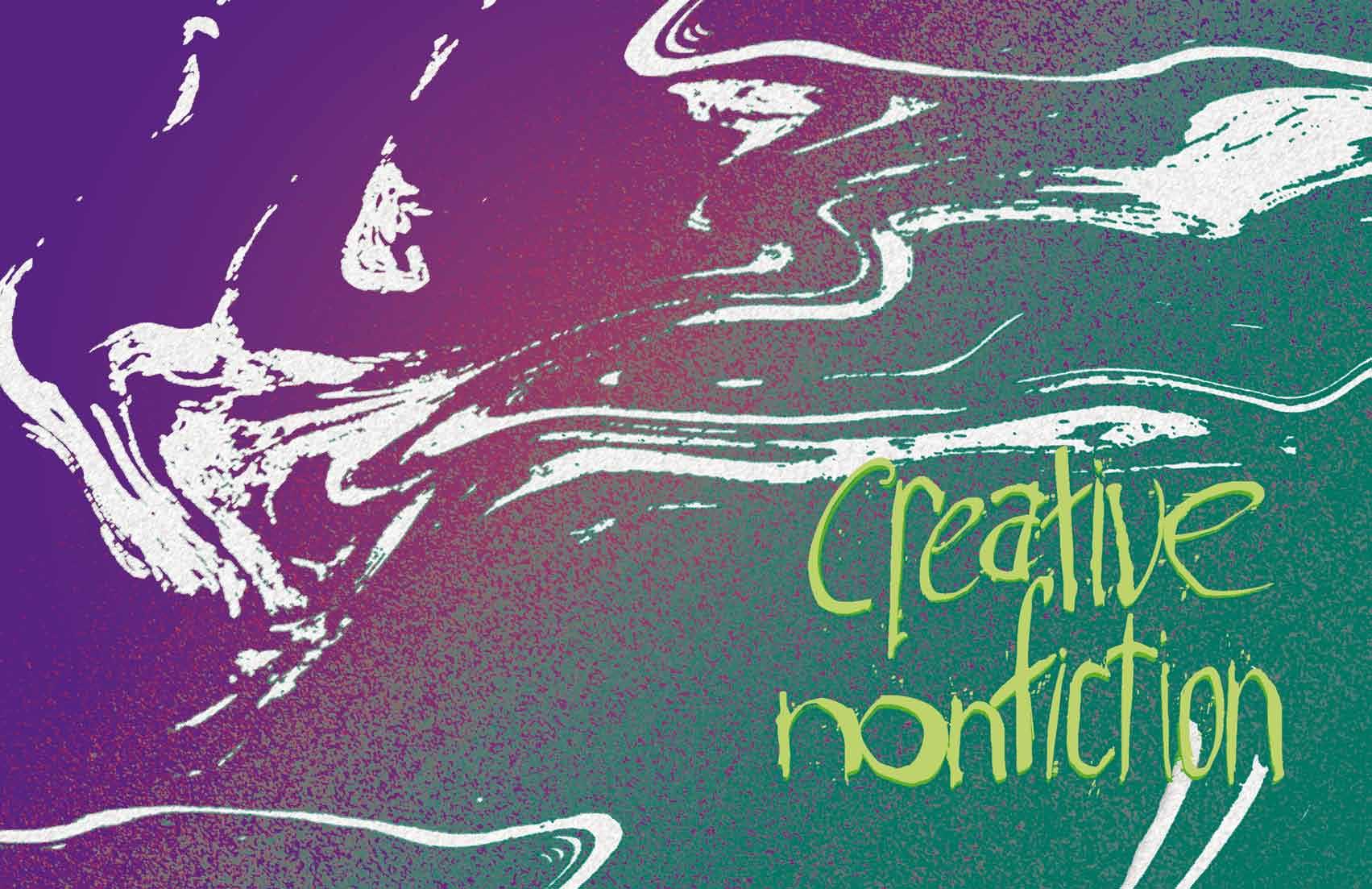
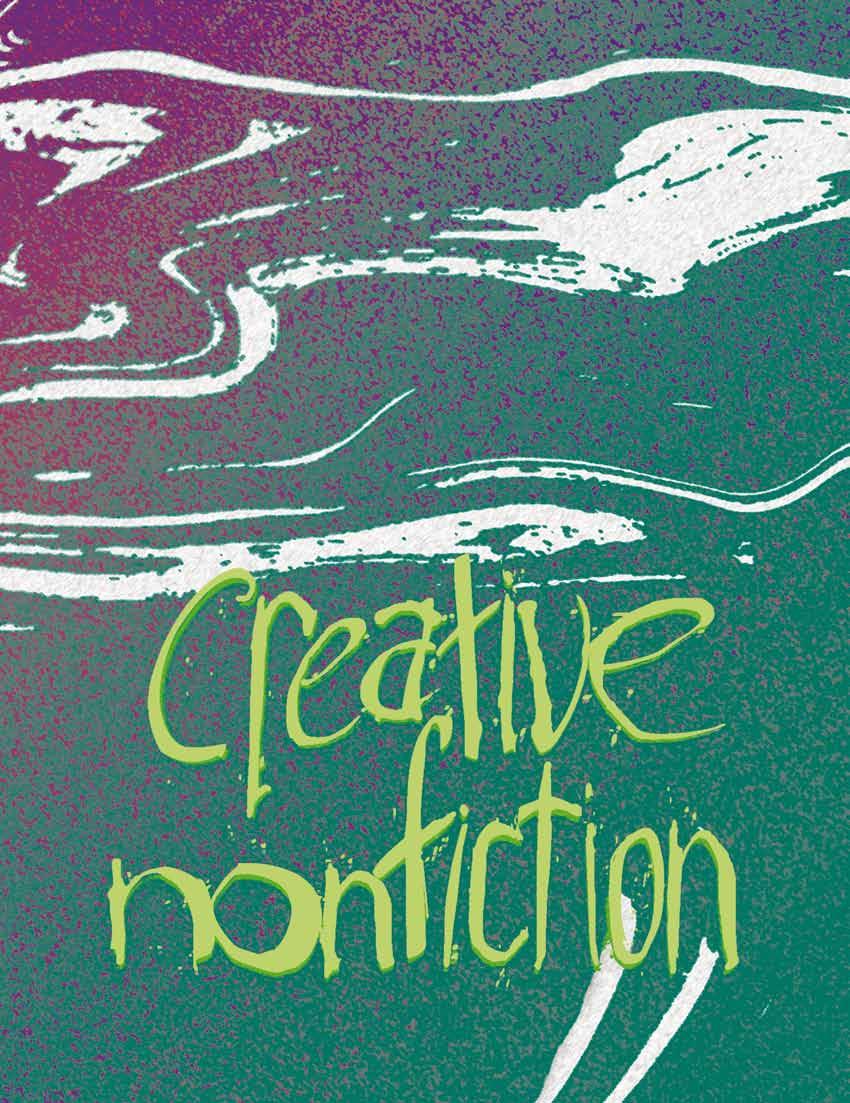
Before I leave my house, I check my backpack. “Do I have everything?” I ask myself. I see my Economics and Computer Applications books, the legal pad I will be using to take notes with, and my all-important laptop. I throw on my jacket because the temperature seems to have dropped from this morning. Once done with those two things, I am ready to get going on my journey for the day. Before I leave my room, I grab my iPod so I can have some entertainment on my trip.
Right before leaving the house, I make sure to say goodbye to the dog. He is old and brittle. Despite acting like a puppy whenever someone new comes over or one of my family members comes home, he still has the look of an old man. It looks like he just woke up from a long night sleep but in fact he is just napping after watching the house for possible intruders all day. As I say goodbye, he licks my hand and looks me in the eyes as if he is trying to tell me to be careful. I walk out of the house, put my ear buds in, turn on my iPod, and begin the twenty-minute walk to the library.
I start walking up my street to the rhythm of Kanye West; a lyrical genius. I catch myself walking to the beat of “Drive Slow.” The song has a jazz feel to it with the distant playing of the trumpet in the background and the erratic playing of the drums. I reach the top of my street, take a left, and now I am on the open road. I start lip-syncing the lyrics and wonder if the passengers in the cars passing by know what I am saying: “He told me, ‘Don’t rush to get grown, drive slow homie’/ Drive slow, homie, drive slow….” This route is oh so familiar as I have walked it countless times before. My elementary school and middle school are just up the hill. I chuckle as in my head I tell myself, “How were you late to school when it was only five minutes away?”
After the big left bend in the street, I find myself walking to next to the cemetery. I used to play inside that place many times when I was younger. As I remember the good times I had with my friends, I am brought back to reality from a honk from a passing car. This is a typical teenager’s car. It is not the best looking car in the world. The paint job is well past what would be called nonexistent. I thought with every bump in the road the car hit, more paint chips must have come off. I say it was a typical teenager’s car mainly because of the amount of people crammed inside of it. There is the driver and passenger in the front, and in the back about four or five kids. They all seem to be having fun, which was the reason for the “friendly” honk. Soon a new song comes into my ears, one of my favorite songs: “Cookie Jar” by Jack Johnson. This is one of my favorite songs because of the meaning behind the lyrics.
The song is about how a young boy who killed someone (or many people; we do not know how many) with a gun. As the song goes on, no one is taking blame for the murder(s). The boy who did it blames it on the toughness of life, not his father, the one who raised him, who blames it on the killing shown on TV, not the media man because he just shows people what they want to see, and not the singer of the song or the maker of the movie that the kid’s life is based upon. The most powerful lyrics of the songs explain what our society has come to: “It was you, it was me, it was every man / We’ve all got the blood on our hands / We only receive what we demand / And if we want hell then hell’s what we’ll have.”
This song lasts me until I get to the end of the cemetery, cross the street, and head up the last road towards the library. As I start looking around at the other people, I notice people from all walks of life. Over to my left, coming out behind the apartment complex, is a young mother pushing a stroller. She looks no older than twenty-three, but her child seems no younger than six. I can see in the mother’s face as she passes the struggles she’s had to endure after most likely a pre-marital child at a young age. As I pass, the song “Yes” by Coldplay in my ears sings: “When it started we had high hopes / Now my back’s on the line / My back’s on the ropes / When it started we were alright / But night makes a fool / of us in the daylight .”
“How fitting,” I say to myself. The next person
I encounter is just your typical middle age man walking his dog. This brings a certain nostalgic feeling to me as I look at the dog because it brings a memory to mind of one of my old dogs that looks exactly like this one.
The library is coming closer with every step I take. I look up at the clouds and see that the sun is trying to make an appearance before I make my way inside a building for the next two and a half hours of my life. I walk past the rehabilitation center where some of my aunts and uncles have stayed after having surgeries or some sort of medical situation.
Remembering them also makes me remember my late grandfather. He passed away two years prior and every time I think of him it is a struggle not to breakdown; still trying to forgive myself after missing the opportunity to say goodbye when he was on his death bed is the main reason why. Thinking about his death also makes me think about the death of one of my friends who passed away a year ago. I think to myself about these two people and it makes me work harder. I always to try and live up to my grandfather’s name but also to keep moving on even when life gets hard, which is a lesson my friend taught all of my friends and I after his untimely death.
The library is only about one hundred feet away. Already I can see my friend Al who sits in front of the library during this time of day because he is collecting change for his next meal. As I pass by I give him a dollar bill and any loose change in my pocket as I usually do anytime I see him here. I pause the music on my iPod, walk precariously past the tables hoping for one to be open, find a seat, sit down, and start doing my work.
After doing my work I feel a sense of relief that I have finished it. I do not have to worry about it tonight so I can hang out with my friends and have a good time. As I leave, my journey begins all over again. Where I go is home but the things I may encounter on the way home I do not know. Hopefully it will be better than the one before.
You drive by them every day — white, beige, green, sober two-story saltboxes with their slanting roofs and meek little hedges, their spindly trees and imitationimitation-Old World columns. Other people’s houses have no context; they function only to fill space along the skyline and prove the worth of the neighborhood as a whole: we are good people here, we mow our lawns, we leave our shades drawn, our TVs glow blue and reassuring through the glass. Our dogs are cleaned up after, our tin cans are recycled, we have never thought of stacking our front porch with furring, rain-damaged cardboard pizza boxes. Our children wear grey sports-team sweatshirts and write on their hands in blue ink and don’t do drugs — don’t do many drugs — don’t let the drugs they do earn them more trouble than their futures are worth, not more than a few stern lectures. Our children have never cried at night, never slammed the tender insides of their wrists against the flaking steel headboard for the momentary whiteout before the pain. Our children have never befriended girls with Asperger’s syndrome, boys who slit their wrists, girls who keep their used tampons in a plastic bag under the bed. Our children are a credit to us. Our children go to school and come home, our husbands go to work and come home, our wives go to work and come home; none of us have ever spent the night tipped back in our office chairs, praying for the world to end before breakfast, or curled up on the wet grass in the town graveyard. Our husbands are still attracted to us, our husbands mow the lawn, our husbands do not become unreasonable when lost. Our husbands love us, our husbands exercise, our husbands make valiant efforts to reattach the thing that fell off the pipes under the sink, our husbands have never sat in a cool white room with us and read off our list of shortcomings in a voice so flat and reasonable they could be giving the stock report. Our wives sleep in our beds, our wives get up in the morning, our wives spend no more time at the gym than we can account for. Our wives shop for groceries, our wives clean the salt prints from the floor, our wives have never gone for drinks with friends and been cagey about their names. Our wives have never told our children about the times they’ve wanted to climb into our car and just drive, over the bridge and past the family restaurants and modular-box hotels along the freeway into some strange, perpetually sunwashed town along the California coast where all the restaurants serve raw food and minor actors wear sandals twelve months of the year. Our wives have never told our children anything. Our wives applaud at school plays and parallel park correctly, our husbands bring home flowers and sing along to Springsteen in the car, our children never lose their library books. Our children never lose their minds. Our cars are perfectly parked and almost clean: you drive by them every day, miles and miles of them, down every street you pass.
I’m not sure what possessed me to take up down hill skiing in my mid forties. Maybe it was my desire to inspire my daughters to take up the sport, or just the need to find something to do during these long New England winters. Whatever it was, the process of learning to ski took one whole season, a season that will forever be embedded in my memory.
My youngest daughter, Alex, was already enrolled for lessons through a Learn to Ski program offered by her elementary school. My oldest daughter, Hannah, being in high school, didn’t have that option, so she and I convinced one of her good friends and expert skiers to teach us.
Arriving at Bradford, a small ski park in Haverhill, Massachusetts, I felt totally prepared. I had the boots, the skis, the hat, the gloves, and the jacket from LL Bean guaranteed to keep me warm and dry enough to go on an Arctic expedition. I had, in my mind’s eye, visions of myself swooshing down the snow-frosted hills gracefully and in complete control like Suzy Chapstick. In reality, I ended up coming down looking more like the Scarecrow from The Wizard of Oz, desperately trying to extinguish the flames of death ignited by the Wicked Witch of the West. Eventually, I was able to control my limbs and skis enough to venture to higher altitudes and challenge the more mountainous trails at Attitash Mountain up in North Conway, New Hampshire. The view from the lift was breathtaking; we actually passed through the moisture of some low hanging clouds. Exiting the lift in near perfect fashion, I coasted down a gentle hill and around a bend to the very edge of the descent. It was here that I somewhat lost my nerve and broke cardinal rule number one of down hill skiing: “NEVER POINT YOUR SKIS DOWNHILL UNTIL YOU ARE READY!”
dAs I looked over that edge, all of my senses were heightened. I could actually feel the blood pumping through my heart. I could see through my fully dilated pupils with crystal clarity every grain of ice covering that section of trail. My ears were picking up the sounds of the snowboarders disembarking the lift and scraping the top layer of ice off of that gentle hill around the bend in a collision course straight towards me. Remember that jacket from LL Bean? I could feel the sweat starting to trickle down my back as my body temperature was rising nearly to the point of spontaneous combustion. I was also keenly aware that I had a patient group of twenty-somethings queuing up behind me, and my daughters were half way down the icy hill shouting words of encouragement in not so patient tones. I’m not sure how I managed to fall at that crucial spot, but while trying to right myself, still somewhat sitting on my skis, I accidentally got them pointed downhill, hence
the breaking of cardinal rule number one. Using my hands like grappling hooks, I was able to come to a complete stop still within hearing distance of the whoops and cheers from my now twenty-something fan club, much to the total embarrassment of my daughters.
The following day, the winds had closed down the lifts at Attitash forcing us to the other side of the mountain called Bear Peak. Although I was fairly comfortable by the end of the day on Attitash’s green beginner trails, I was unprepared for Bear Peak’s blue intermediate trails, the only options there that day. A friend of ours, who was a member of the ski patrol, offered to go up with me and see that I made it down in one piece. What normally would have taken him not much more than a minute or two to speed down that trail was now becoming a true test of friendship. At one point I can recall telling him to “Go ahead without me; I’ll come down with the spring thaw.” Luckily, he did not take me up on my offer, but instead taught me some skills that I still use to this day. To wrap up the season, I treated my daughters to a weekend at Sunday River, in Maine. Another friend of ours had a condo on the mountain that allowed us to ski right out the door and down to the lifts. With trail map in hand, we headed to Jordan Bowl’s Lollapalooza. It’s marked as a green beginner trail, described as a wide, tree lined, gentle, four-mile trail. What the map fails to tell is that at the very top, the sun beats down to soften the top layer of snow until the wind chill hardens it like glass that even the most experienced skiers can only hope to quickly pass over, there is a critical near ninety-degree turn that faces towards a sheer drop off barricaded only by a plastic fence which I am sure if hit hard enough anyone would continue to plummet over the edge like a fish tangled in a net. It was there that I learned what I was made of.
On our final day that weekend, being totally inspired by the winter Olympics, I determined that I too had enough rhythm to tackle the moguls and bumps designed to shake loose any dental work not firmly in place and realign my spine at the same time. Taking it a bit slow down the first run through, I did pretty good. What I did not take into account the second time was the fatigue in my legs. Halfway through the mogul minefield, I lost my rhythm and caught an edge of my ski, twisting my knee, and thus ending my season. Although my season was cut short, my love of the sport was not hampered. I don’t have as many belly laughs at my own mishaps now that I’m a little more cautious and a little more experienced. Perhaps it was the frequent opportunities to laugh at myself that first season on skis that has caused me to consider that winter my favorite and downhill skiing the only sport I have continued with.
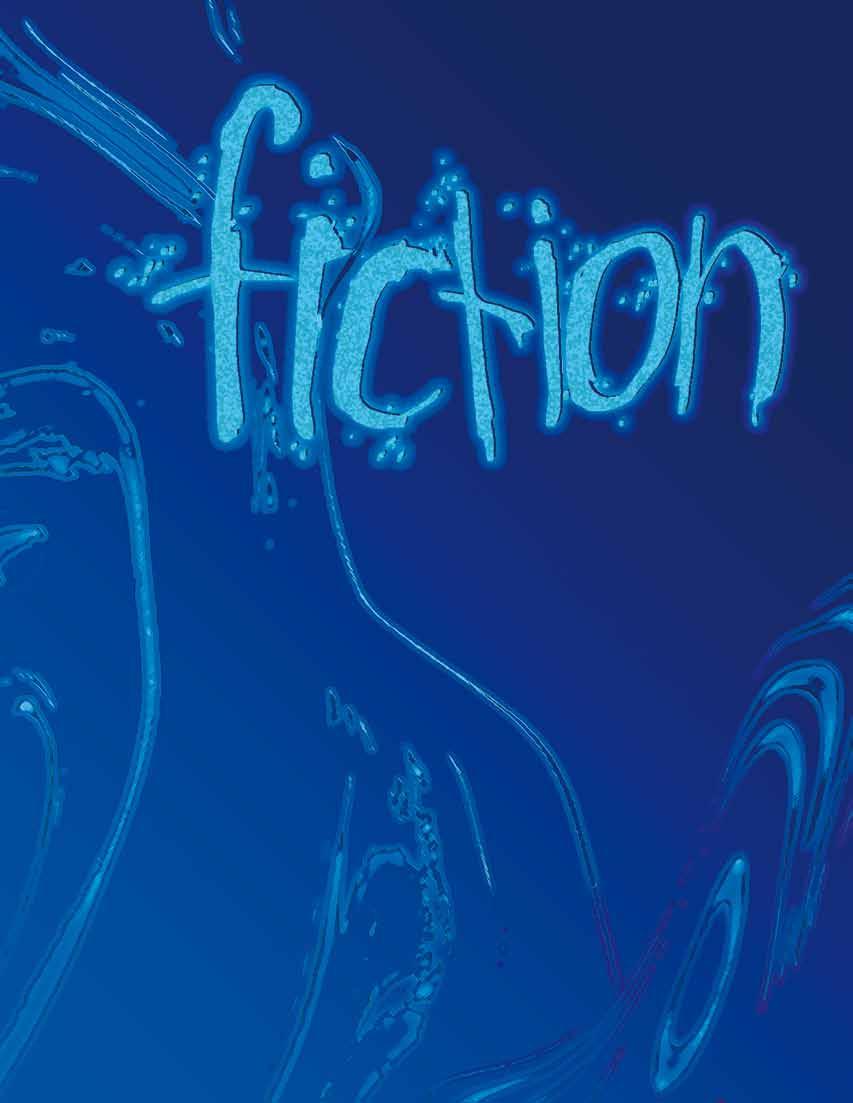
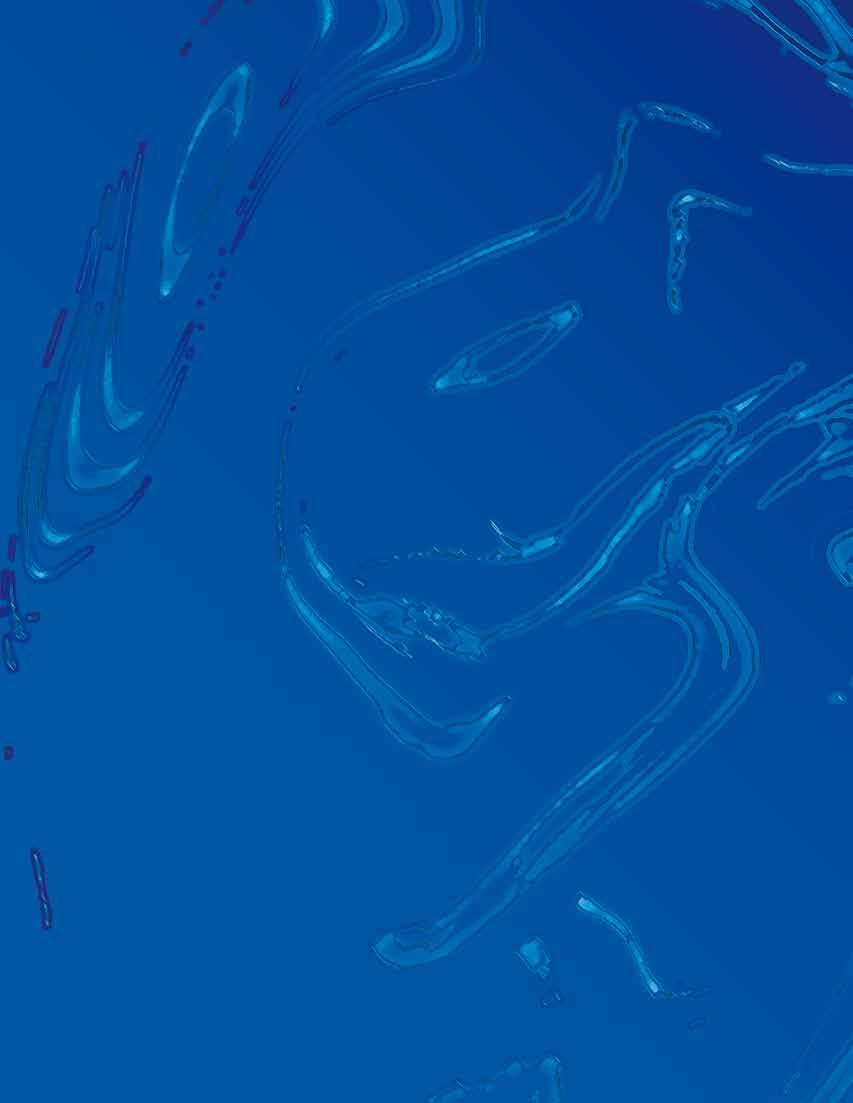
Ilooked in the mirror—hot pink disheveled hair, blue puffy eyes, little blonde spikes of hair under my chin, lips swollen from sleep. It was too early. My pounding headache screamed at me. It begged me to close my eyes and fall into a trance of slumber. My eyes drooped. Sleep was such a temptation. I popped three Tylenol. Two just wouldn’t do the trick anymore. Not for my headaches. I cupped my hands under the bathroom faucet and brought the running water to my lips to taste the refreshing cold. It poured down my dry throat like healing streams. The elixir of life. I covered my nose and mouth with my hand and breathed out. Ack. Morning breath. I’d deal with that later. I gelled my hair in a tall pink Mohawk. I looked good, I guess. It didn’t matter to me what others thought. My Mohawk was me. I walked over to my room and put on my camouflage shorts and my red high top Converse sneakers. I grabbed a black t-shirt and a studded choker and headed outside. I was late for class.
It was raining as I ran to the car, and I struggled to get my arms in the shirt. I snapped on my choker and opened the car door. My car was a mess. Fast food wrappers competed for the number one space—Taco Bell had them all beat. There were more chalupa and bean burrito wrappers than there were Big Mac or Rodeo Burger wrappers. I knew it was bad for my health, but really, who cared? I know I didn’t. It was impossible for me to resist fast food, especially with a nice cold Coke by my side. That reminded me; I was hungry. I’d just have to grab a McMuffin on the way.
The engine revved, and the sound of Metallica roared from the speakers. I sped down the street towards McDonald’s drive thru and ordered an Egg McMuffin with a hash brown and a large Coke, no ice. I took a long, drunken sip of my Coke. Ah, nothing felt better. I reached campus and parked the car. This stupid college was a joke. I only went so my dad wouldn’t kick me out of the house. It was 9:20. Class started at 9:00. I grabbed a pen and a notebook from the ocean of trash in the back seat and ran across the parking lot toward the building. I ran through the hallways with my breakfast in hand until I reached room 113. Basic Writing II with Professor Brighton. Now this class, yeah, this class right here was a joke. This guy was a joke. Professor Brighton. What kind of a name was that? I walked into the quiet classroom. No doubt, Professor Brighton was having the other students write an in-class essay. I hated in-class essays. They were always about some load of trash like “What do you hope to gain from this course?” and other junk like that. Ack. I was sick of it.
“Jason, so nice of you to finally join us.” His voice was utterly nauseating. “We are writing about the happiest moment in our lives. Think about it and try to expound on it. Give reasons of why this moment had such an impact on you. Start the essay in class and finish it for next class time. A minimum of two typewritten pages, double-spaced, 12-point font, please. If two pages aren’t enough, feel free to write as much as you like.”
“Yeah, sure.” Yeah, right. That man must have been on crack or something, because there was no way that I was going to write more than two pages of this trash. Happiest moment of my life, psh! I sat down at a desk near the back and finished the last bite of my Egg McMuffin. I clicked my pen, opened the notebook to a blank page, and started
to write: “The happiest moment in my life would have to be…” The happiest moment in my life. The happiest moment in my life. I couldn’t think of anything. I had never been happy. What did happy mean, anyway? Happiness was for stupid girly people like Professor Brighton. He was a joke.
Professor Brighton let us out early. If that wasn’t the happiest moment in my life, then I didn’t know what was. I just couldn’t sit there too long thinking about that dumb paper. I walked through the hallway and headed toward the middle of the building.
“Yo, Jason, how’s it going, man?” My best bud Mark gave me a pat on the back.
“Nothing much, just got out of class early. I swear my prof is an idiot.” I laughed. “So I see you got your lip pierced after all.” I pointed to the silver loop at the corner of his bottom lip.
“Yeah, I got it done yesterday after class at the tattoo place up the street.”
“Just make sure you rinse that thing after you eat. When I pierced my own lip, I forgot to rinse my mouth, and it got infected. I had to take the ring out ‘cause my lip was all inflamed.” I showed him the scar under my lip. “It hurt like crazy taking it out.”
He laughed. “Yeah, man, I bet. Well, I gotta get to class. See you around.”
“Later, dude.”
I put my grubby finger over my scar. Trying to pierce my lip was one of the dumbest things I had ever tried to do before. The pain of twisting the ring out of my lip was still imprinted in my memory along with the smell. It was the stench of rotten food and century-old morning breath.
I was bored waiting for something exciting to happen, so I walked over to the computer lab and pretended to write my essay. Writing an essay didn’t seem too appealing. Instead, I just surfed
the internet for more Metallica CDs and checked my e-mail. Someone sat down next to me. It was a girl; I could tell because the air had all of a sudden smelled like fresh cut flowers. I turned my head over to get a good look at her. She had straight brown hair that went past her waist. Specks of water from the rain rested on her forehead. Her face was small and heart shaped, with round cheeks that ended at the point of her chin. She looked familiar. She wore a black, short-sleeved dress that extended down to her ankles. She was wearing brown, beaded flip-flops and her toenails were painted clear, with a diamond-like jewel on each of her big toes.
“Can you stop staring at my feet, or is that some new thing that guys really like?” Her voice sounded agitated. No doubt, guys were hitting on her everyday. I looked up at her face, and big green eyes stared back at me. She had little freckles on her nose.
“I’m sorry, I really didn’t mean to—I was just—”
“Hey do I know you? I think I know you from somewhere.” Her voice was sweeter now. She looked at my face, as if she was studying it. “I swear I think I know you—I’ve seen your face before. I know it.” She put her hand on her forehead and wiped the rainwater away. She rubbed her hand over her temple, thinking.
“My name is Ja—”
“Wait—wait, don’t tell me. I think I got it.” She rubbed her temple some more.
“You’re funny, you know that?” I smiled and I could feel the dimples in my cheeks start to form. I hated those dimples. They totally messed up the look I was going for.
She saw my dimples and smiled. They must have given me away.
“Hey, is your name Jason? Jason Flanders? I don’t know if you remember me, but we used to be really good friends when we were younger.”
Now I remembered her. “Tracy?” I hadn’t said that name in over ten years. I had almost forgotten about her. How could I have forgotten about her?
“Yup, that’s me. I can’t believe you remembered my name. I thought for sure that I would have never seen you again, especially after your parents got a divorce.”
“Don’t even remind me. That was one of the worst moments in my life.”
“I remember you took it pretty bad, and remember even then you never wanted to talk about it.” She paused for a second and looked at my pink Mohawk. “You look different. A lot different than I remember you. The last time I saw you, you were wearing jean overalls
and thought all girls had cooties. You definitely don’t wear jean overalls anymore, and I don’t know if I am taking a wild guess here, but I’m pretty sure that you don’t think girls have cooties anymore.”
“Yeah, that cootie stage. Well, that cootie stage passed a long time ago. A loooong time ago.” She laughed. I missed that laugh. I wanted her to keep laughing, but she stopped. “You’re not much different. You’re still the same Tracy that I remember from before. Everything about you is the same. I see you still wear dresses all the time. You were always a little hippie like that. And your hair is still long like it was before, if not even longer.”
“It’s grown some. I’ll never cut it. No way. I can’t seem to part with it.”
“I’m the same way too. It took me forever to grow out my Mohawk and now that I have it, I never want to cut it. It means too much to me.” She half-smiled at me. Something about her smile seemed odd. Her green eyes gaped at me. It was quiet, too quiet. I broke the silence. “So what have you been up to these days? I haven’t seen much of you for a while.”
“Well I started college last fall and am working towards getting a degree in photography. I’ll probably transfer to a four-year college in a couple of years. My photography is okay. It’s not amazing or anything, but it’s the best I can do for now. What classes are you taking?”
I was afraid to say. I didn’t want to seem like an idiot in front of her, but I couldn’t lie either. I could never lie to Tracy. “Basic Reading II, Basic Writing II, and Basic Math. I had to take remedial courses because I dropped out of high school.” I was embarrassed telling her the truth. I was never as smart as Tracy, and I knew for sure that Tracy’s photos were beautiful. She was just being modest. She always had a knack for that artsy stuff. And me—I wasn’t good at anything.
“That’s awesome to hear about your classes.” She was never a good liar. I could tell in her eyes that she was disappointed in me. Disappointed in everything about me—the way I looked, the way I dressed, the way I turned out to be. Who I was. “Well, Jason, it was really nice seeing you again, but I have to get to my photography class on the other side of campus.”
“Do you want me to give you a ride over there? I don’t want you to walk in the rain.” Oops. I shouldn’t have offered her a ride. If I gave her a ride, she’d see my messy car and see all the trash that I had in there. She’d know how much of a slob I was. I secretly hoped she declined the offer. Don’t say yes. Don’t say yes.
“That’s really sweet of you, Jason, but I don’t mind a spring rain fall. I actually love the rain. Maybe I’ll get in some good photos before class. I’ll just see you around some time, okay?”
“Alright then. See you.”
And just like that, she was gone. I could barely look her in the face before she turned her back to me and walked toward the door of the computer lab. She left behind her the lingering scent of roses. h9d
Seeing Tracy again had brought back so many memories. Too many memories. When I thought all the memories of those days had gone away, all of a sudden they came back to me. They weren’t in order. They were just jumbled together into one massive thought. I remembered Tracy when she was a little girl. She must have been around eight years old then. Her hair was long back then too, but her mom made her keep it up in a high ponytail. When her mom wasn’t looking though, she’d take out her ponytail and let her hair loose. I used to love it when she’d put her hair down. Any time her back was turned to me, I’d touch the ends of her hair with my fingertips. It was soft, so soft. If she ever caught me touching her hair, I’d pull on it, and tease her. I’d call her Rapunzel, Rapunzel. She hated it. That was usually when she’d try to pull my hair and realize that there was nothing there for her to grab. My hair was short too short for chubby fingers to grasp.
I remember when her mother used to make us peanut butter and fluff sandwiches. They were my favorite. Peanut butter and fluff on white bread, no crust, cut diagonally, not vertically. We’d get peanut butter all over our faces, and the fluff got on our fingers and made them sticky. Tracy would daintily lick each finger one by one, and I’d lick my whole hand. I was a slob even then. We’d drink down our sandwiches with grape juice boxes. I’d blow into the straw and make gurgling noises. She said it was gross, but I knew she liked it. She’d laugh. I remember that laugh. It was the same laugh from earlier today. She was always laughing at my dumb jokes. I made her happy. So she’d laugh. She’d laugh and that made me happy.
She laughed the hardest though the day we made mud pies in the backyard. It had rained the day before and the lawn underneath the trees was still wet. It was a hot summer day, so we were both wearing our bathing suits. This time her mother had put her hair way up high on her head. I wanted her to take it down so badly. My fingers had ached to touch her hair again. She went and sat in the shade right in the mud. I sat down next to her and sank my fingers deep into the ground. It was cold. I pulled out a big chunk of mud. She giggled. She started to put her hands in the mud and she laughed. She started to form little piles of mud on the side. They were pies she told me. Apple pies. She was the baker and I was the customer, or how she put it, I was the person that bought pies.
“I’d like to buy a pie,” I’d said. “That will be five dollars, please.” I put my muddy hand over her muddy hand and pretended to pass her money. I took a pretend bite out of the pie.
“This pie tastes like mud! This is disgusting!” I could hear her giggling and starting to laugh harder. I threw the mud pie on her lap. She threw one at me. We started to laugh. She touched my face with a muddy hand. It was pay back. I grabbed a mud pie and threw it at her face. It made a big splash and she got mud all over her. She wasn’t even mad. She laughed even harder. I was happy then, hearing her laugh. She pretended to oink. Now we were pigs, she said, playing in the mud. I rolled in the mud and let it cool me from the heat. We rolled in the mud together until all of it had dried up. She got up from the shade and pulled a dandelion from the ground. Blow on it and make a wish, she told me. You had to blow away all of the seeds to get your wish. I made a wish, a wish that I can’t even remember today, and I blew as hard as I could.
Barely any of the seeds blew away. My wish would never come true. But I didn’t need a wish
because I was as happy as I could have been right then. With Tracy by my side, I was the happiest boy in the world. She grabbed another dandelion and ran with it across the yard. The seeds blew away as she danced and twirled. Her ponytail started to come undone. She kept dancing until her hair was completely free from its elastic prison. She was free, as free as the dandelion seeds. She grabbed another dandelion and continued to twirl in the backyard. I remember thinking about how beautiful she was then, and thinking about how much she meant to me. I was happy watching her be happy. I knew at that moment that she was my best friend, and that I loved her. I loved my best friend. I never saw her after that day until today. My parents had divorced, my father and I moved halfway across town, and my mother wanted nothing to do with us, with men. My mother walked out of my life just like that, just like Tracy had done today. Gone with barely a goodbye. Gone without knowing that I’d ever see her again.
It was starting to get late and the computer lab was closing soon. I skipped out on all of my other classes that day, trying to work on my essay. I tried to put into words the happiest moment in my life, that day with Tracy in the backyard. I tried but I couldn’t type anything unto the page. The one time when I actually had the possibility of writing a good paper, and I just couldn’t do it. What I felt for Tracy was impossible to put into words, but I knew what it felt like. I knew what it felt like to have her in my life, and I knew what the emptiness felt like when she wasn’t there. That was what I was feeling all these years. An emptiness. A void. The loss of a friend. Of a love. I got into my car. A Metallica song screamed out from the speakers. Stupid song. I turned it off and let the sound of rain drops be my music on the ride home, the pounding of the rain beating like my heart. When I got home, I went up to the bathroom. I looked in the mirror at myself - blue puffy eyes from tears streaming down my cheeks, a stupid scar under my lip and a tall pink Mohawk that spoke volumes of who I was today. I was different. I knew I was. But I didn’t want to be. I wanted to be the Jason that Tracy would have loved. The one that Tracy might be willing to love even now. My hand rummaged through the drawer for a pair a scissors. I was going to end this now. I brought the scissors closer up to my face. I was scared, not strong enough to end this vicious cycle of my life. But I had to be. I raised the scissors up higher. With one snip it was all done. Who I was before was gone. I watched each pink strand fall on the floor. One landed on my lip. I made a wish and blew it away.
The fork plunged into her arm, and as I raised the knife to cut out a piece of flesh, she moaned with desire. With the delicacy of a newborn I slowly lifted the fork to my mouth and began chewing as she watched with a ravenous stare. With each bite her hands slid down her chest until she met her panties and a feverous groping fiesta erupted: masturbation and mastication.
With the skin swallowed I raised my eyes and spoke in a lustful hush, “Your turn.” Her hand remained on her panties for another minute before she stood, her face harboring a horny smile, and she tiptoed over to me and snatched the fork and knife. With gentle caress she ran the fork up and down my face before stopping at my cheek. Her arm darted back and then forward, the fork pierced my cheek, and I leaned forward to kiss her. We held lips for a brief moment and she lessened her grip on the fork, lost in the translation of love and lust contorting throughout the room and radiating from our wounds. Our lips separated and her eyes rolled into the back of her head, but she returned and brought the knife to the lonely fork stuck in the side of my face.
The knife danced around the fork as though some bizarre ritual to entice it, and a circle of skin separated as she pulled it from my cheek and to her mouth. The sensation was tantalizing and I shut my eyes and imagined us as skeletons on a hill enjoying the city skyline. The fork escaped from under her lips and emerged bare. Her smile exposed blood-tainted teeth and I chuckled, “Oh, you devil.”
My arms extended and I tugged her violently onto the couch and we lay side by side facing one another, my gaping cheek staining a crimson circle onto the cushion. The lustful intentions calmed and my eyes pierced hers and vice-versa, fork versus fork, and our noses embraced like Eskimo knives.
“You’re beautiful,” she said.
I answered with a barrage of kisses on her neck and her body shivered. Like a cunning snake my kisses slithered down across her breasts to fill her chest, which I still had yet to taste; I’d hardly known her for a month and only knew the deliciousness of her arms. The time was not a factor to me; my heart told me this was love.
With force beyond her own she grabbed my head and shoved it between her legs. The antique clock across the room struck midnight and sirens echoed from the city streets but the sounds never truly reached our ears. Blood still leaked from my cheek as I came back up her body. Bloody kisses marked my route. She blinked when I kissed her between the eyes. Her arms wrapped around me and she whispered into my ear, “Devour me.”
We made love until the final lights of the city faded and as we collapsed beside one another we only heard the symphony of night and felt the electricity jolting between our hands, which were so close yet so far. Our bodies were against each other, our legs conjoined scissors, and our eyes returned to utensil uniform. She turned slightly onto her back and I mimicked. We stared at the ebony décor the night had veiled over the ceiling and for a long while we said nothing. Our eyes darted and spoke the words we weren’t speaking, moving frantically as if there were some hidden picture in the darkness above.
I turned my body to face her as her head rolled over until her chin rested on her shoulder, and I admired her. I could trace the shadows of her mouth, her thin and defined lips, raised to show off their liveliness. I followed a bridge of black that connected her top lip to her nose and my eyes darted slowly upward where her eyes should be, but were now nothing but gaping holes of endless midnight wonder.
I smiled a smile she could not see. h9d
I awoke first and saw her naked beauty bathed in sunlight; I got up slowly so not to stir her and went to put some coffee on. She woke a few minutes later, rubbing her eyes and walking in small strides, shaking off the last bits of dreariness.
“Good morning sunshine,” I greeted.
“Good morning to you too,” she smiled. I sat at the kitchen table and sipped coffee. I felt drops run down my chin onto the marble top. She sat down across from me, her breasts rising with each small breath, and her arms stretched above her head, her knuckles cracking together.
“Care for some coffee?” I asked. She shook her head no and nodded towards the bathroom. I set the coffee down and walked across the room to turn on the light and while she started the shower I said, “Good thinking.”
With early eyes we climbed into the shower together. The water splashed down over my head and cascaded down her slender body. She danced when she put shampoo in her hair and seductively washed it out, making swift motions that made her breasts jiggle. She watched me while I washed myself, scrubbing the soap over my chest, legs, and arms, and as I began to wash it off I felt a wondrous bite in my shoulder.
I turned to see a thin line of blood dripping from her lower lip, as she stood chewing.
“What a beautiful animal you are.”
She backed up against the wall of the shower and slowly slid down until she was lying down with her legs bent. She uncurled her finger, and I too lay with her under the rushing hot waters.
I pressed my face against her left thigh, turned, and bit into it. She screamed with passion, her eyes darted wildly, and her hands were clenched so tight she could pull the tiles right from the walls. The blood dripped from her thigh and leaked red blots across the shower bottom. I wanted to grab one of the blots out of the water and ask her, “What do you see in this picture?”
Maybe her response would be clouds or dolphins. Or maybe just ink on paper.
I finished chewing, and we made love with the hot rain on our backs. There were no words to be said, and we often found ourselves locked in silent staring contests. The motion became faster and faster and yet, our eyes never parted gaze. The only sound was the cascade of water and even that grew inaudible after some time.
We climaxed, turned off the water, and began to dry off. She whipped me with the towel and laughed. I picked her up; she kicked and screamed, and I tossed her onto the bed. We got dressed and while she put on her makeup, I finished my cup of coffee at the kitchen table. She came over, her eyes were lined in a thick black and her hair was pulled up and burst out like a fountain; little tentacles of hair sprouted everywhere. Her lips were a thin pink and a baby doll dress colored with abstract flowers adorned her; Picasso’s garden. The car was on, and I fiddled with the radio while she locked the door. The sun was high in the air, petting the trees and taking the obscurity away from the bird’s songs. She hopped in, and off we went.
We ended up at a small sidewalk café. A thin fence lined around a cobblestone yard of tables and chairs, the café a mustard canvas that sprouted out of the earth. We sat down at a table as a waitress came over to take our order. I looked around at the people surrounding us, as the couples sipped their tea and stroked one another’s arms. It was so beautiful to see so much love. Over to my right a young girl laughed, and I saw her tongue lash in and out through her open cheeks. The girl reached her arm up, chunks of flesh missing, and her elbow bone peeped out as her man kissed her palm.
“Look at them,” I said, pointing.
“Such young love,” she said. “I hope it works for her.”
The waitress brought our teas, and as her arm extended to place them at our table, I noticed her arm was still bare and intact.
“Haven’t found the right one yet?” I asked.
The waitress’ smile slanted to a crooked crack in her face, and she shook her head. I thanked her for bringing the tea as she made her way to other tables of wounded lovers.
“Let’s be them,” she said to me, her eyes alerted to the table behind me, and I slightly turned.
Two gray haired skeletons sat hunched over cups of tea and nibbled on a pastry from the café bakery. The sun shone off their bones and illuminated them like the opening of Pandora’s Box. The only flesh remaining was their lips, which they kissed each other upon before I turned my head back to stare at my love.
“What a rare sight that is,” I said, her hands grasped in mine. She smiled.
“The tea is delicious,” she commented, and I nodded in agreement. Behind me I heard chairs moving and feet moving; the skeleton couple was getting ready to leave, the man placing a tip on the table while his wife’s bony hand waited for his. As they began to pass our table, I stopped them.
“Excuse me.”
The skeleton man turned first, his wife still slightly oblivious as to where the voice had come from. He guided her around to face me, her jawbone open.
“That’s just so nice,” I said, “the two of you.”
The man nodded. “Thank you son.”
“I was just telling her,” I pointed to my love, “how rare it is to see people such as yourselves, so in love.”
The man chucked a skinless laugh, “Sixty years strong.”
We met purely by accident, or perhaps it was fate. I boarded the city bus simply on my way to a local club to waste the night away. Carnival was in session and the nightlife exploded for two straight nights, the time when many learned life continues to exist under the light of the moon. The bus was crowded and as I walked down the aisle, my head jerked from side to side as my eyes scanned for an empty seat anywhere. And there she was, the only rider on the bus without a companion. I shuffled past and sat next to her; she turned her head slightly to examine me, as if I may not be worthy to take the seat next to her. The bus rolled forward, and for a long while I said nothing and simply stared at my knees. Outside, people screamed and hollered, and the brilliant lights paraded through the bus windows and illuminated the seats and riders. I looked up, and people became blue and red; the seats glowed green and yellow, and at times a slight rainbow could be seen haunting above all of our heads.
“Where are you headed?”
A soft knife through the carnival chaos struck me; the girl had broken our bond of silence.
“Oh,” I began, “just shooting around, killing some time. You know.”
She nodded. “I love carnival.”
“I’ve never been that excited about it,” I said. The bus came to a stop and as people piled out into the street, more piled back on to party on at some other destination. The bus moved once again, blurring across scenes of smiling midnight clowns and lines of drunk dancing.
“That’s a shame,” she said.
“Why do you say that?” I asked.
“It’s the one time of the year you can be someone else; you can be whoever and whatever you want and there’s no one to call you out on it, because you know what?
Everyone else is pretending to be someone else, too.”
I thought about it for a moment; the bus screeched to a halt once more. “So who are you pretending to be?”
She laughed and her face turned to a pale yellow against the spotlights outside.
“Whatever you want me to be.”
We slumped over a table in some smoky bar, a drunken aroma melted into our skin, and hysterics flew from our mouths as alcohol glided down our throats. She stuck to her word; she was exactly what I wanted her to be, but I hoped she wasn’t pretending.
Someone across the bar began yelling, “Carnival! Carnival!” and everyone raised their glasses in rejoice. I raised mine to the false cause, as did she; we clanged our glasses together and downed what was left. We left without paying as we escaped past the occupied waitresses into the wild night of Carnival.
The streets were crowded; staggering drunks abounded, and wild screams shot out from crowds illuminated by glowing sticks and trashcan bonfires. As she held her composure, my walk had transformed into a slight limp, and my body rocked back and forth trying to keep up with her. We found ourselves in a dark club,
lit by purple florescent lights and filled with a miasma of heads and arms, dancing outside of their own bodies.
She grabbed my hand and pulled me through the crowd, and faces swirled by me, all delirious and bobbing to the music that flowed throughout the small room. We danced under the flashing lights; her face stared back at me in split second motions, a smile, then blackness, a smile, then nothing. I moved, unaware of my actions, just allowing the music to take hold of me while her eyes composed.
We awoke that morning on a park bench. Her head slumped into my shoulder, and my arm cradled around her. Her little nose crinkled as she turned slightly and the first rays of sunshine entered her eyes. She looked up and kissed me on the cheek.
“Morning.”
I stroked my hands through her hair. “Morning.” I looked around and heard the stillness of the air, the slight and soft song of the early birds and the rolling driftwood remnants of Carnival. There was no one in sight; the park was completely empty, and beyond that I heard not a sound from the city. Carnival’s chaos was over, and bleak and mundane shadows had crept back to claim their stake on life.
“We’re all alone,” I said.
“We are all we need,” she said.
The lights were out, and we were surrounded by candles. She tiptoed towards me with ghostly flight, and I was on the couch without my shirt on. She wore black lingerie that I’d never seen before; her arms sported my inflictions of love, and I had the desire to rip her cheeks off.
Her eyes were focused and anyone other than me have might mistaken her glare for lunacy rather than love. She straddled me, her arms wrapped around my neck, and I looked down to see a fork and knife tucked into her panties. She brought her mouth right next to my ear, her chin against the hole in my cheek. Her tongue tickled my ear lightly, and she giggled.
“Happy two months.”
“You too baby,” I whispered.
Each time we kissed it was like the first time. Each time I felt like a child again, back in the eighth grade under the bleachers at the school night dance. Her hair was done up, twisted into a tall poof, and strands fell onto her cheeks. Our hands quivered inside each other’s, and I stood on the edge of my childhood waiting to leap off. As teachers patrolled the gymnasium and other kids frolicked to the music and huddled around the punch table, we sat with our legs crossed under the abyss of the bleachers, while small beams of light cut through the cracks in the seats and gave life to our eyes. Her mouth was a time machine.
Her skin against mine, her kisses paraded down my chest, while she removed her lingerie and the silverware clattered to the floor as she stood naked in front of me. The candles cast their flicker across her body and made her skin dance. I stood up and took off my pants, and we both took our own ends of the room, staring and bare. The candles licked the black air and slowly, with the ease of a hunting lion, I stepped forward and, upon seeing my action, she did the same.
The game continued, step and stare, step and stare, my turn, her turn, my turn, and hers, until we met and our noses bent together, her breasts melted into mine, and our hands became a piece of each other’s bodies. There was a tangible energy between us that filtered through our veins and absorbed into the nooks of the room. She knelt gently and retrieved the fork and knife. “Oh, lover!” she cried.
I lay down on my back while she hovered over me with surgeon’s eyes. Up and down, her pervious eyes searching for the tenderest piece of flesh before her gaze stopped.
“I want a piece of your heart,” she said.
“It’s all yours,” I replied with a smile.
Her eyes lit up, her thin lips widened, and her cheeks puffed out slightly. My hands reached up to graze her gentle skin as her breathing sped up and her chest pulsed in and out rapidly. The candles watched from all around us, small flares of fiery passion encircling the darkness in the room. She raised the fork above her head, and her porcelain grin morphed into an animalistic sneer.
The fork pierced my chest, and my heartbeats radiated against the cold metal. She was fierce in her approach, and the knife cut voraciously into my skin, such bloody delight. Further and further the thin fork traveled; I stared at the ceiling, and my chest became my eyes, her face casting a sinisterly loving mug over me.
She held a piece of my heart in her hand, drenched and dripping, while her other hand groped at her crotch, and I could see her legs tingling. I sat up and looked over at her as she held up the piece of me. “This,” she said, “This is our love.”
I grabbed the fork from the floor. “My turn.”
We were dressed in our finest for the party of the year. She was adorned with a silk dress that stopped just above her knees, black and crunchy, with a belt to accessorize her waist. I was in a suit far too fancy for my tastes, white shirt and black tie, and as I adjusted it around my neck, she stood with her elbow slumped against the doorway and waited.
I could sense her excitement as it radiated from her and washed over my shoulders. Every part of her complained and whined to me as I slipped on my shoes. Her elbows moaned against the doorway, her fingers dangled with tears, and when her feet sighed, her heels would click against the floor. I stood up. “Ready, baby?”
She raised her elbow, and it smiled like a joyous puppy. Her fingers dried their tears immediately, sat patiently against her sides, and her feet jumped for joy while her toes wriggled with delight. Her mouth widened like a crescent moon fallen on its back, bright and gleaming. I followed her down the stairs, as she seemed to hurry from some invisible predator. The car was on before I had made the corner of the driveway, and she began to beep hysterically.
“I’m right here!”
Her fingers were ravenous, curling and uncurling, as they tapped against the wheel and groped the stick shift. I barely had time to slam the door shut as the car sped off. Her feet became bricks tied down onto the gas pedal, and I clung to the door handle with all my might. There was a sense of ruthlessness about her that I had never sensed before, as if Death were sitting in the middle seat caressing and kissing her neck. She drove with one hand, her other flailed excitedly about in the air, an undead hand job.
The scenery outside flew by like shattered glass; fragments passed before my eyes could adjust, blurs in time. Birds were long black lines, and trees assembled themselves from a watercolor palette; houses collided into one another, and the pedestrians were decapitated by chain link fences and street signs.
“What’s the hurry?” I asked.
“We can’t arrive late,” she said. “This is the party of a lifetime.”
“Whose party is this again?”
“Walter,” she said. “I met him at the last carnival. He throws the most wonderful parties.”
“What’s so special about this goddamn thing anyway?”
“Because,” she said, “we can pretend to be someone else.”
“What is wrong with who we are?”
Her eyes remained straight ahead on the pavement as it thundered under us, and the stop signs melted past us in red blaze glory. Her foot was still heavy on the gas, with one hand on the wheel and the other maniacally squeezed her knee. She was madder than she had ever been, more crazed than anytime we had made love, and I’d never seen
the stare she inhibited now, not even when she gnawed on my flesh in her piranha-like prowess.
The mansion was bustling with life. Vines suffocated the stone pillars that outlined the gardens, and picayune fish swam through the endless maze of streams and ponds. Over every corner, maidens whisked about in frenzy as though their imaginative dresses would turn to rags at the stroke of midnight, while suitors scurried to find the perfect damsel in distress. There were punch bowls, and there was drunk dancing to music that seemed to sprout from the wind, and the moon peered over the roof like the uninvited guest.
She led me to him, holding my hand as though I wore the plague. He stood there so smug in a divine stance, and he kissed her hand when she extended it in greeting. He reached out to shake my hand and shed a smile of egotistical pearls.
“I’m Walter. Welcome to my party.”
I went to get some punch while she remained next to Walter as he offered her drinks, and as her voice carried in the wind, I often heard her respond to him, “Oh darling, that is simply marvelous!” The falseness fell from her flesh, and she blushed red lies. I watched her from under the solitude of a large willow tree as she removed the person from my own body and replaced it within Walter’s; I became a part of the tree shade.
Finally she left him and walked over towards me, peering in through the opening in the weeping foliage. Her face wasn’t her own, but a variation of someone I once knew, continually stacking layers upon her as the night wore on like a Matryoshka doll.
“Darling,” she said, “why aren’t you my fabulous Romeo?”
I grabbed her and pulled her close, the stench of intoxication heavy on her lips. I stroked her arms and tried to pull off the cloaks she had placed over herself, endless shades of woman. Outside the tree the party raged on, the spotlights moved across the lawn and lifted
the gardens into a phosphorescent fire, while screams and shouts seemed to echo around us, and we were the lonely couple under the tree.
I kissed her cheek, lightly at first and then clenched my teeth down hard. She pushed me back as I ripped a small piece of flesh away, and she stared at me wide eyed while thin lines of blood raced down my chin and splattered onto my suit.
“What are you doing?”
I looked at her hard and hoped I had succeeded in ripping away one of her artificial layers. She reached up to cover the hole in her cheek and rubbed it, only smearing blood instead of repairing the wound.
“I want your heart,” I said.
“I’m not hungry right now,” she replied. As she stepped back she tripped over a rock and landed flat on her back; the shadows consumed her body, and I pulled her in closer to me.
“What did you say?”
Her eyes were not hers, her lips were not hers, and even her dress had seemed to change color. My hands were tight around her waist, and I got drunk from her breath, but the closer I looked into her new eyes I saw someone else inside of them. There, inside the blue spheres, Walter pranced around in his over-the-top glory, showering her with champagne and skimpy lingerie, and she danced for him while he sat and admired. Walter saw me staring into his utopia and swung a set of keys around his finger. “Looking for these?”
I dug my teeth into her shoulder in a storm of rage and ripped the skin all the way down to her knuckle. A small chuckle filtered from her eyes as my head swayed from side to side, tearing and tearing.
“I’m not hungry anymore!” she screamed. And still that bastard mocked me, and I moved past her skinless arm and began chewing on her eyeball. She continued to scream but was lost somewhere between the hugging arms of the tree and the ruckus of the night outside. Every muscle within me tightened, and I snapped with every ounce of
love I had until her eye hung down from a string of sinews against her mouth, and I saw Walter escape out the other door in the rush of tears.
“I’m just not hungry anymore.”
I stood up, and she ran from the tree; her arms waved and colored the evening in a blotchy burgundy, as her eye swung like a pendulum trying to hypnotize the party guests. I laughed as she ran, and so many people stared at the gaping holes in her body, the skin hanging and her falling eye, and remarked, “Now if that’s not love, I don’t know what is!”
When I trace my fingers around the scabbed formations all over my skin, she is there lying on top of them. She is running down my leg every time I bleed, and she darts in and out of me every time I breathe. She is in my refrigerator every morning, and she still sleeps in my bed at night, tossing her eye up into the air and trying to put it back in its socket.
One night I’m walking outside and there are no sounds to be heard. The city is dead, and the last lights fade in honor of the stars in the sky. She might be in the house, or maybe she is out for a drive, but I’m alone on the sidewalk.
There is a stir, and in the distance I see a homogenous blackness running towards me. Under a smiling moon, the blob takes shape, and the infinite pack of coyotes run past me. Snarling, their keen eyes never move anywhere except forward, and their noses twitch with a killing instinct.
I watch them run past me, but their bodies don’t seem to have an end. And wherever she is, she will never see my face again. Whether she is tucked under my sheets or at a stop sign, she will come home to an empty house. I want to see nothing but scars on my arms and legs; I don’t want to see her tongue in the hole of my cheek. I rip off my shirt, shredding it as easily as her skin, and I run into the pack. There I am running with the coyotes into the concrete jungle of night. I feel their instinctual gaze accept me, and the moon and stars applaud. We run past darkened homes and abandoned buildings, and I am one with the beasts. By the time she comes home, I’ll be a million miles away.
Mom said it hurt like a bitch to push me out of her. My arm was broken, and she took me to a glassblower who blew a new one for me. “You’re lucky I’m a good mother,” she says.
h9d
I’m upstairs with my boyfriend Andrew; he’s lying on my bed while I try on new clothes.
“So you could like go back to that glassblower and have him blow you bigger tits or something right?”
I throw a rumpled shirt at him. “Shut up.”
He laughs, and it’s so cute, I laugh too.
“Glass. You leave it in those places, like your memories. Why isn’t there any in me?”
I sit up and look at him. “Maybe because this isn’t such a good memory?”
He puts his clothes on and leaves. He doesn’t call me for a whole week.
Now I’m crying, the tears just running down and glossing my body. I’m rolling around on my bed and kicking. My foot slams into the wall and my heel breaks off. I don’t want to remember this, so I throw it out my window. The sound of my heel shattering in the driveway, like sad falling icicles, makes me cry harder.
“What’s wrong with my tits?” I ask, and I shake my chest, but nothing moves.
“Nothing at all,” he says. “I like how smooth they are.”
“How does this look?” I ask.
He looks me up and down. “You shouldn’t wear light blue. The color fades into your skin too much. You need something… more… vibrant.”
I hold up a red v-neck with short sleeves. “This?”
“Try it.”
I do, and he applauds. h9d
Andrew and I are shopping downtown, and before we leave I break off my pinky toe and leave it on one of the store shelves.
“What are you doing?” he asks.
“I used to come here as a little girl,” I say, “with my grandma, every Sunday.”
“So?”
“I leave a little piece of me in places like this.”
I take his hand and we head down to the park. I bring him down to the duck pond and reach my hand into the brown water. I pull up a small piece of glass, my middle finger from when I was younger. “See?”
I don’t feel anything when Andrew and I have sex, and he cries because he says it hurts. I lay down on my back while he thrusts into me, but there are only tears. His crying leaks all over my chest and drips straight down onto my bed. “Stop it,” I say.
“You’re getting my bed all wet.”
When he finishes, I look down and can see the pattern he left inside of me. One time he asks me, “Why isn’t there any glass left in me?”
“What?” I ask. My head still down on the pillow.
I walk around town one afternoon and leave pieces of me all over. In the shops I used to visit as a child, in the diner I always used to eat at, in the yard of my grandmother’s old house, under the bridge where I used to throw rocks into the river. Maybe someone will find them and remember me. Then I leave a piece on Andrew’s front porch.
He calls me the next day. “There’s a piece of you in my foot,” he says.
“And?” I ask.
“I don’t want it there. I don’t know how it got there,” he says.
“Well,” I say, “what do you want me to do?”
“I don’t know….” He hangs up and doesn’t call for another week.
“Hello?”
“I’m turning white,” he says. “I’ve been bleeding for a whole week straight. Can you just come get it out?”
“Why can’t you just pull it out yourself?” I ask. I’m a little irritated.
“I tried. It won’t budge. It’s just sticking out. My shoes… they’re ruined,” he says. “I bled all over them. Please.”
“You just don’t get it, do you?”
“Get what?” he asks.
“Forget it,” I say and hang up.
I hobble down my stairs, straight out the door, past the pile of me in the driveway, and all the way downtown. I’m still crying, and people are staring. I go into the shops, into the diner, stick my hands down into the duck pond; I’m wobbling across the yard of my grandmother’s old house and grabbing every little piece of me. Cradled in my arms are toes and fingers, a hip, a kneecap. I take them all to the glassblower. He looks at me funny when I walk in and drop the broken body parts in front of him. “What can I do for you?”
“Melt all of this down,” I tell him, “and use it to make my tits bigger.”
His eyes widen a bit and his brows furrow, then he shrugs. “If that’s really what you want…” his voice trails off.
I stand there while he melts all the pieces down. He asks me to come out back, and I lean down into the fire. It burns, and I wonder if that’s what sex feels like. He blows and blows until my chest is bigger than my head.
h9d
I trudge all the way to Andrew’s house. I want him to remember me, I want him to miss me, I want him to see my new tits and smile. I want to rip out the piece of glass in his foot, the piece of me, and say, “See? Don’t you see?”
But his house is empty. I look through the window and there’s nothing inside. The furniture is gone, the walls are bare. I start to cry again and sit down on his porch. The tears fall onto my chest and wash away all my memories.
These dim lights don’t give her beauty justice as she sits behind her desk typing away. Her usually sleek, long, light brown hair is pulled back in a messy bun to prevent stray hairs from blocking her vision, and her vivid, blue eyes are rimmed with pink from being up for almost twenty hours. She’s writing a story, but her mind is elsewhere. She glances at the clock blinking bright red numbers, telling her it’s almost four in the morning. Her mind is back home though, sitting on the beach, watching the waves crash on the shore as Alan gives her a back rub. The sky is partly cloudy, the seagulls cry overhead, and the children are shrieking as the freezing water collapses over them in its mission to take over the beach.
The screen on the computer goes black, ripping her from her daydream and forcing her to write on. The keys click awkwardly at this hour of the morning, trying to not wake up her already belligerent roommate. God forbid the girl sleep at a normal hour and not stay up until three in the morning and decide to bitch that she has to get up early. Alan had never been like that. He would go to sleep, let her do what she needed to do, and was very quiet in the morning while he would wait for her to wake up. Sometimes he would cuddle with her to wake her up, and then they would head to the beach, back in that sand, always changing, but always the same. If they got there early enough the sand wouldn’t be super-heated from the sun yet, and the walk to find their own little spot on the endless beach would be far less painful. There were no beaches out here, so far from home. Her roommate rustles the blankets in an attempt to roll over and she moves her small hanging light to point closer in her little cave under her lofted bed. Her desk is a mess, save for the space where her hands and arms are resting in front of her laptop, but she doesn’t care; she needs to get this all written out and down on pseudo paper in the form of hardware. Things were a lot simpler on the beach. The only thing she had to worry about then was making sure she didn’t get a sunburn from staying in the water too long. The sixty-degree water reflected the sun’s rays like a mirror and caused her to burn much worse than if she just lay on the sand and not put on sun
block. Boy, did she hate sun block, but Alan always made her wear it. She had been so weak back then, doing anything and everything he said or asked her to do without question. She had loved him. Her cell phone vibrates on the desk next to her computer. She reaches for it, knowing full well the text could only be from one person. Her insides squeeze together as she picks it up and reads. It’s from Alan, and he’s with that girl Jess. Her heart beats so hard she thinks it’s going to break free from her chest and run away. She glances around the room, but there is nowhere to go. If this had been three months ago she could have prevented this; he would still be with her, they would be on the beach, and if something upset her, she would just get up and dive into the water, the chill setting all her senses straight and numbing her so she wouldn’t feel a thing. She looks back at the computer and types up a couple more sentences, looks at her progress, climbs out of her chair, and heads to the bathroom.
She stares at her face in the mirror, but instead of seeing the beauty that is blatantly there right before her eyes, she sees a hideous creature, undeserving of love, Alan’s love, and in desperate need of punishment. She shakes her head and goes
back into the main room. Her roommate snores softly, her computer screen goes black again in the corner where her desk rests, and she inhales slowly, holding her breath to hold back a new rush of tears. She turns off her light and climbs into bed, still thinking of the beach. Still thinking of the warm sun caressing her body while Alan rubs her back, those innocent children enjoying their time in the water, with no worries of the future, unaware of the hidden dangers only a few years away, and to the seagulls flying over head, free to do as they like and go where they want. Free to run away if they feel hurt or threatened. Just free in general, much like the ocean and the beach, and her summer. She sighs and rolls over, the covers pulled up to her chin, and she closes her eyes, wishing she was free from the paper and from her past.
Upon landing, the strange and new world seemed tranquil and uninhabited. Pockmarked craters littered the surface of the crimson and ghostly realm. The only obtrusive sound in the eerily alien silence came from the whirring and robotic clicks issued from the newly arrived and foreign heaps of metallic and unnatural construction, built for voyage and conquest.
Anticipating any movement, trivial or threatening, the galactic expedition stood vigilant watch over the landscape. A dull rumbling slowly materialized, but was muffled and hidden by the more overpowering lull of the star-traversing vessel. This ship and its crew had become intrudingly acquainted with collecting and harnessing otherworldly domains, adding to their never ending and glutinous repertoire of stellar plundering. The newly arrived company began taking samples of terrain and air, high and low, using machines to do their bidding.
Leagues away, the rumbling gained in intensity as it rapidly traveled towards the space people’s encampment. Unknowing of the oncoming peril, the cosmic defilers drilled, bored, and ravaged on, all in the name of science. The machines were ignorant devices enslaved by even more ignorant masters, created for knowledge but harnessed for destruction. The great pistons pumped and droned on blotting out any natural noise, waging war on any and all realms they settled upon. Smoky disturbances and mischievous pollutants riddled the regions that were “explored”. Natural resources were stripped away and with it hope and life. Mass amounts of flora and fauna were thieved and put to the test under needle, scope, and knife. Those that were lucky enough to escape the clutches of collection were doomed to a tainted and sickly world. Knowledge attained of each new specimen seemed to be measured by the extinction of its species. Temperatures either plummeted or raised, and air thinned or thickened. The skeletal frames of great and strange ocean-dwelling beasts stood dismally among their former sea beds, now harboring small creatures
among the sanctuary of bones. Oftentimes, climates altered dramatically or unnaturally halted. No matter the disastrous outcome, these unwelcome cosmic guests heralded pestilence and change. Death followed these spacemen wherever they went, all the while pushing buttons, winding gears, and pulling levers from within and atop their chaotic chariots.
Miles away, an even greater craft scoured the surface. Like some kind of great spider, its pseudo-organic legs carried it to the epicenter of the human landing. Creatures aboard this alien yet indigenous insect-like ship became curious and eager over these new and foreign invaders. With inherent powers, the beings focused their will outwards, encompassing the humans to glean any insight. They discovered that these bipedal, furry-headed, and soft-skinned animals controlled bronze, brass, and iron beasts of burden. They had brains far smaller than their own and a kind of lust that could never be fully sated. They were inferior in all ways that could be measured. The greater ones were avid to learn more about them and so continued their march to gather more data.
The humans looked up wide-eyed through their glass windows, sighting an extraordinary beast racing towards them. The large-brained beings willed their mobile beast to open its maw. Like a colossal shovel, the cavernous mouth scooped up the metallic, earth-made vessels, and they tumbled down a tube into compartments. They would later be observed and dissected like lesser things, inferiors on a wider scale.
Always use caution with this mindset: a check-book is unforgivable, but chance gifts are unforgettable….
Blue sea glass sets the tone well past morning. Chance find, a mood freshened in low light, easy thoughts of patiently settling into the day’s track the way a tide claims the waterline. A rising sun, coursing through my fingers to a mysterious Aquarian core, beachcombing shadows as easy as gathering the day.
Even dulled, almost to an unflattering reflection, it sings, waxing and brooding, moody as if missing the sea. Fate that a rich cobalt, too, being anything else?
Chance gifts arrive from air too. An insect (no parasites included) mistaking me for the simple benevolence held only by nature’s background, me, a stable respite to do whatever insects do. Is it a choice by appeal or instinct? Either way, dragonflies rank #1 in that surprise category. Hornets rank second. An encounter with a mantis has no equal.
A bird feeding out of my hand is a sacred connection that borders on true harmony. Benevolence has no boundaries. Just ask the hornet.
Even though a checkbook or any materialistic, man-made symbol, cannot possibly harbor emotion, everyone can relate to its cruel indifference. Its controlled reigning in of what we want to experience to what is possible to experience, rendered down further to what do we dare to experience based on the speculation that the means can be acquired via a magnetic strip. I don’t know though, credit cards do make my checkbook cranky. (And I’d really like a nice weekend for once.) But hey, who’s always happy?
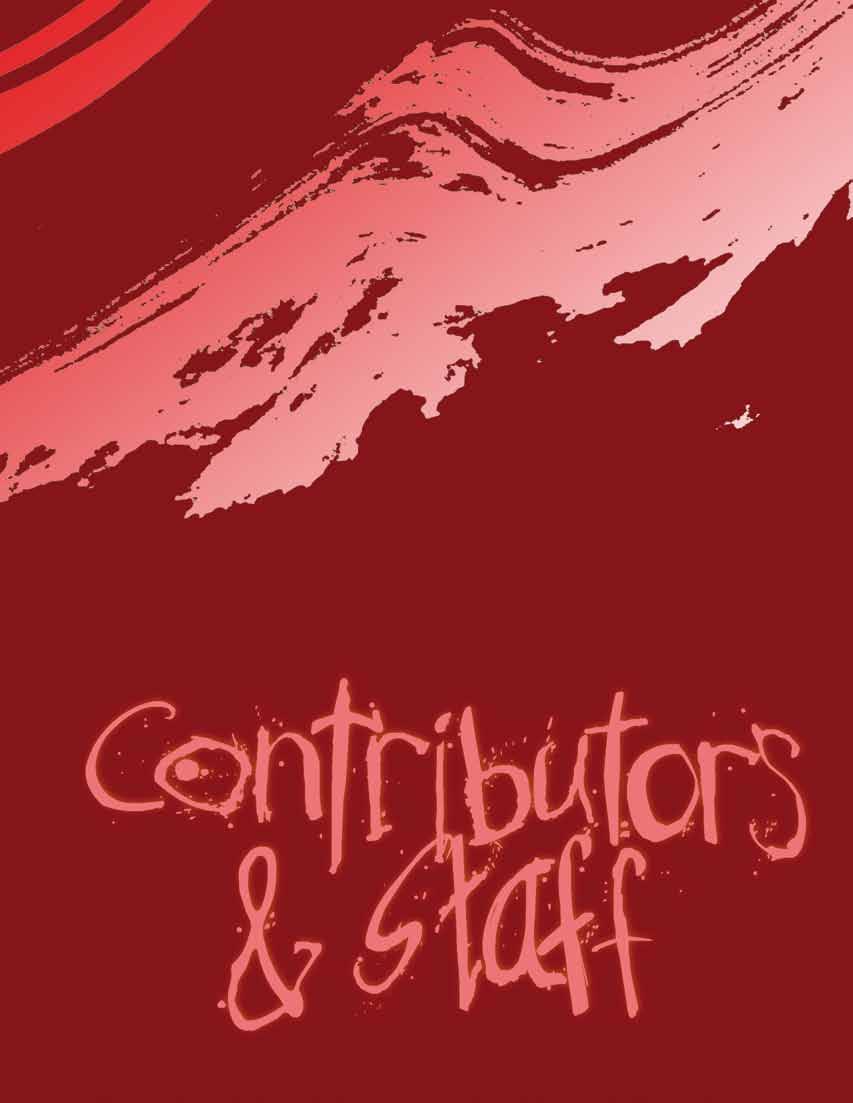
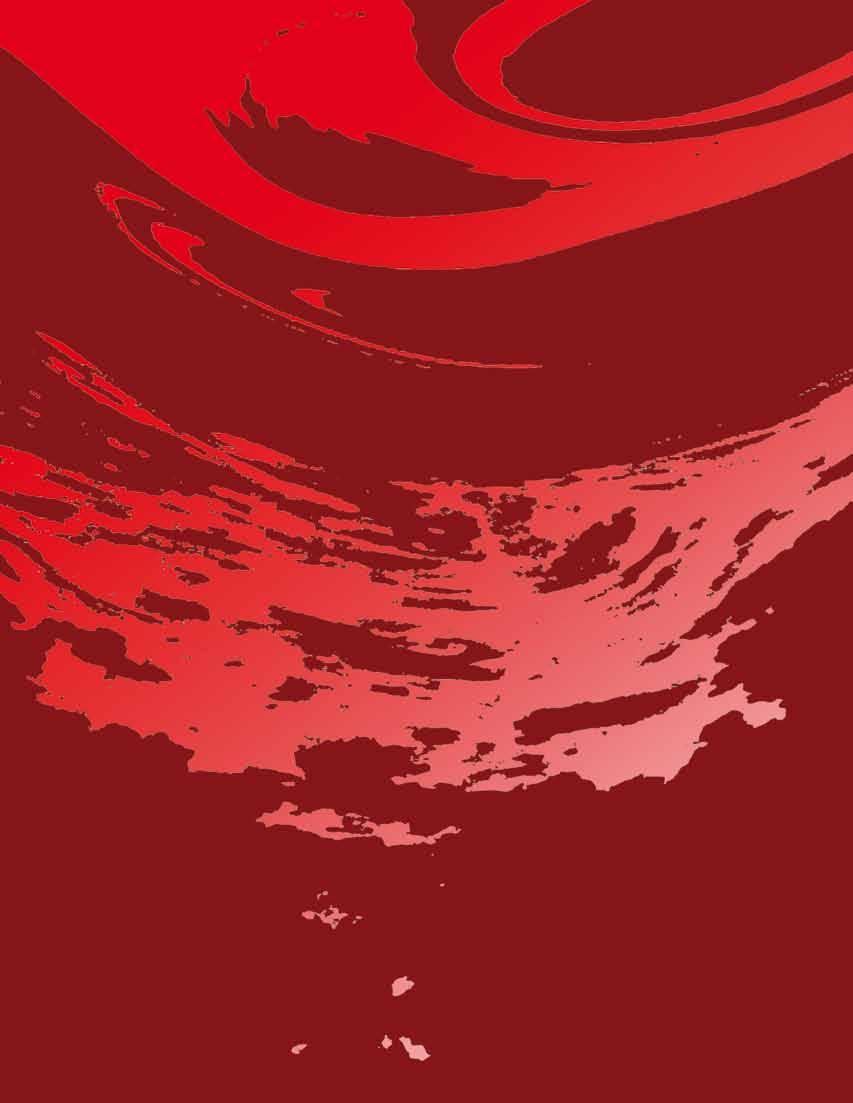
Thomas P. Antone is a non-conformist Island dweller who lives by the following: Question everything! Challenge Authority! Don’t take yourself too seriously! Play nice.


Alex Aro is an aspiring author from Haverhill, MA. He will be graduating from NECC this semester and will continue his education at Chester College. He is currently finishing up the final drafts for his first novel, Island of Paradise, which he hopes to publish soon.
Ralph Basiliere was the surprise interview that every critic eventually encounters. At forty-two, I expected a pot-bellied, quirky replica of my father. Instead, he’s contemporarily in dress, impeccably groomed, and athletic; he is the cool-kid grown up! By his own admission he is a confessional poet who doesn’t try to disguise the work’s meaning. “Beautiful Inside” is the first of a trilogy, composed in clear language and stanzas. He said softly, “It is the product of trying to draw upon nature to clear my head regarding Melissa ‘Maggie’ Robinson...” His eyes swelled, his deep voice cracked; he continued, “the love of my life-lost by my own hand.” He struck me as a collection of doublets: poet and pit-bull, polite and unapologetic, decent and flawed, a man who suffers and lives a full life. “Beautiful Inside” is from his sketchbook, Past the Breakers, in a chapter titled “Dancing In the Surf with Maggie.”
Zamira Cano-Aliaga has recently completed her Associate’s in Arts from NECC and is planning to transfer to an Art college so she can pursue her Bachelor’s and then a Master’s Degree in Fine Arts. She is incredibly thankful for all the opportunities NECC has provided her.
Ben Cantwell is a second semester student at NECC. He is also the son of an Eagle Tribune newspaper editor and the godson of well-known author Andre Dubus III. Writing and storytelling have always come naturally to him from his father and godfather, but the main influence on his writing comes from his late grandfather. An avid sports fan, Ben hopes to one day become the leader of a sports franchise and will take his first step by transferring to a four-year college in the fall of 2009.
Conrad Fitton is a figment amalgamation of your imagination.
Jesse Harrison is a very creative, down to earth, unique person. She loves taking pictures of people and captivating raw emotion in her photography. Her photography is all about life and being in the moment. Some day she hopes to be a professional photographer or album cover designer.
Cathleen Jaffarian is currently working at her Associate’s in Elementary Education at NECC. She also has been studying Chinese for the last two years at the Boston Language Institute. She plans on utilizing her Associate’s Degree and her Chinese with her TEFL Certificate, which she completes this June. Her dream is to teach English in China for a year and to return home to further her teaching degree. Cathleen wrote the poem “A Daughter’s Goodbye” days after her mother passed away from pancreatic cancer. Her mother left a legacy of family and tradition. Cathleen is inspired by her mother’s strength, values, and love and wants to carry on these gifts to her family. Cathleen’s mother’s life inspires her to write poetry and someday a book of family, love, and tradition.
Carolyn Jarvis is a sincere, young, female photographer. She is wrapped up in the subtle nuances of her own reality. Her passionate spirit will set her free.
Lathon Jones-Downing is a twenty-one-year-old aspiring artist of many passions. Even though his academic focus is bringing new life into the world as an OB/GYN, he tries to gain new perspectives with his photography. He can usually be found everywhere on campus, interacting with his peers and enjoying life. He also serves as Presidential Student Ambassador and Student Judiciary. He frequently uses time warps to complete his schoolwork. He has also been cited as a promising poet and a future President.
Dawson Lazdowski is enrolled in the General Studies program and, according to family and friends, spends way too much time behind his camera. When not oblivious to the world outside the viewfinder he can be found walking his “pal” Coco around the streets of Newburyport or, much to his family’s dismay, fishing. Hopes? Getting into Mass Art or generating more cash from photography, whichever comes first.
William Leith spends most of his time searching for buried treasure. As a toddler he inspired his younger sister to read. In return, twenty years later she inspired him to write. William thinks that bios are the most painstaking task that a man can ever be given, thus he spent a whole week coming up with only three sentences.
Merissa Livermore-Johnson is a twenty-year-old New Hampshire native that loves to write and read, and yet somehow hates school. She is a Leo in every aspect and expects her book to be published by 2010. She is also very in love with her best friend Stephen Purple who encourages her to write all the time and is like her muse in a way.
Bart McArthur is a believer in movies, puns, Joe Satriani, Dream Theater, Porcupine Tree, nifty t-shirts, and the word “nifty”
Sam McCarthy likes apple pie, fast cars, and action films.
Timothy Michitson is a twenty-two-year-old, life-long artist and poet. He is a student of Graphic Design whose life goal is to share his artistic vision with the world in order to inspire future young artists. He is inspired by poets and authors such as Allen Ginsberg and Jack Kerouac, and artists such as Vincent Van Gogh, Salvador Dali, and Andy Warhol. When he is not working or studying, Timothy is observing life, and seeking out the heart of the American Dream. In his free time, he enjoys painting, sketching, writing poems and short stories, and contemplating the meaning of existence. In the immortal words of Jim Morrison: “The time to hesitate is through!” In the immortal words of Jefferson Airplane: “Feed your head!” In the immortal words of Ghandi: “Be the change you wish to see in the world.”
Adam Mooshian is a budding photographer. He specializes in landscapes and both horse and dog racing, and is known throughout the northeast for his racing pictures. His work has been featured in such publications as Hoof Beats as well as several websites. During the summers, he works as a photographer at Rockingham Park. He is currently a student here at NECC for Civil Engineering, and hopes to finish up his credits soon! In his spare time, he likes to chase geese with his trusty beagle companion, as well as seagulls at the beach.
Dan Racite is the calamitous commodore that conspires to wake the night. Charged with the insurmountable weight to weld the cosmic universal, he is prepared to set forth on his journey to the unperceived bowels of the unknown. Fresh from the deadly rank clutches of time immemorial, he pursues his calling of Graphic Design. He is now masterminding a plot to the beyond and holds true to wage against the tides of abomination.
“I love to write only when I hate being forced into it….”
Bill Reid’s dogma has more fleas than a literary agent’s cat, I thought. He didn’t answer my question again. At least I don’t think he did. “Thus,” he continued, finger thrust true north, “I hate to write only when I’m not forced into it… but then again, isn’t all that’s loved forced?”
Only then did I, in my forty-three years of journalism, seem to understand:
“Love is defined by angles of perception. Perception is always in conflict with self – a double helix. Perception alone does not define love, and love alone does not define self.”
Too heavy… I felt the makings of a nosebleed.
“Why do you write to confuse?” I couldn’t help it, the question slipped— burped out actually. I didn’t possess enough aspirin to justify this assignment, so I settled for the obvious:
“Confuse? Nah Dude, think three times about the same thing twice and you’ll get it.”
I smiled.
“Bingo.”
Jay Ryan is wicked cool and awesome. He is an eclectic dreamer who is just trying to make his way home.
Jade Scarpa is a freshman college student at NECC. She is studying to become a teacher. She enjoys listening to music, watching The Office, cooking with her boyfriend, camping, long car rides, buffalo chicken, playing Apples to Apples, and reading. She works as a receptionist at a spa and enjoys the company of others.
Joyce Shipley-Alders is what some may refer to as an academic late bloomer, attempting college for the first time at fifty. Born the last of five in the Midwest, she took on the natural characteristics of last born… the comedian. To the chagrin of many teachers, the classroom was her stage and her peers were her audience. A few years after graduation, she moved east with the promise of love and adventure. Joining her love interest in business at Hampton Beach, New Hampshire’s “The Cow’s Ass Leather,” she has flourished for the past thirty years. Aside from having a long term marriage and successful business, her proudest accomplishments are her two daughters Hannah, who will graduate with a degree in engineering this spring, and Alex, who will be attending UMass Amherst’s nursing program in the fall. Both daughters have played a major role encouraging her to enter into the academic arena.
Natasha Sudiaman is a highly sophisticated writer, yet an immature lover of dinosaurs. She is an Illustration major with roots from New York and New Hampshire. Natasha plans on becoming a highly renowned author and graphic designer. Addicted to chaos, rock music, iced tea, and video games, Natasha is an endangered species. She hopes to inspire others to laugh and feel peace with her art.
Emma Ward is a mediaholic, a perfectionist, and a fatal caffeine overdose looking for a place to happen. Her hobbies involve late nights, instant messaging, obsessive playlist reorganization, and waiting for the blue police box to come and take her away from all this. Her hair is significantly less ambivalent than the rest of her.
Babak Alian
Colin Baldwin
Lucy Baldwin
Denya Blanco
Deybet Blanco
Hunter Comack
Meghan Dempsey
Samantha Gordon
Sophia Herring
Lathon Jones-Downing
Alex Torresi
Alumni Advisor
Rob Carlson
Patrick Lochelt
Susan Stehfest
As a club at NECC, the Parnassus staff is open to any active and slightly off-their-proverbial-rocker students. Meeting times are publicized at the beginning of each semester — come aboard and see the difference.
Contributions to Parnassus are limited to students, staff, and faculty of NECC and are accepted each semester in the areas of fiction, poetry, creative non-fiction, art, and photography. Entries are reviewed and voted upon democratically by the editorial staff and faculty advisor. Submission deadlines are announced around campus each semester, and Parnassus is published each spring, right about when the last icicles drop from the bitter eaves of May. Entries can be submitted in the designated Parnassus boxes on each campus, or electronically through our incredibly awe-inspiring website:
www.parnassuslitmag.com
Be sure to download and complete the submission form, including your name, title, and email or phone number, available online. Faculty advisor Patrick Lochelt can be contacted for any burning literary magazine questions or comments at: plochelt@necc.mass.edu. Thank you!

In spring of 2009, we held a campus-wide fundraiser to help supplement our diminished printing budget for this edition. With the incredibly generous support of our philanthropic readership, ranging from staff and faculty to friends and family, we were able to produce the excellent issue that you hold in your hands. Countless and many thanks to each of you who helped support the great work of our students. We couldn’t have made this issue without you.
Gold Patrons ($100 and up)
NECC Humanities Department
NECC Liberal Arts
Denya Blanco
Sandra DeVellis
Patrick Lochelt
Phyllis Lochelt
Susan Stehfest
Silver Patrons ($20 to $99)
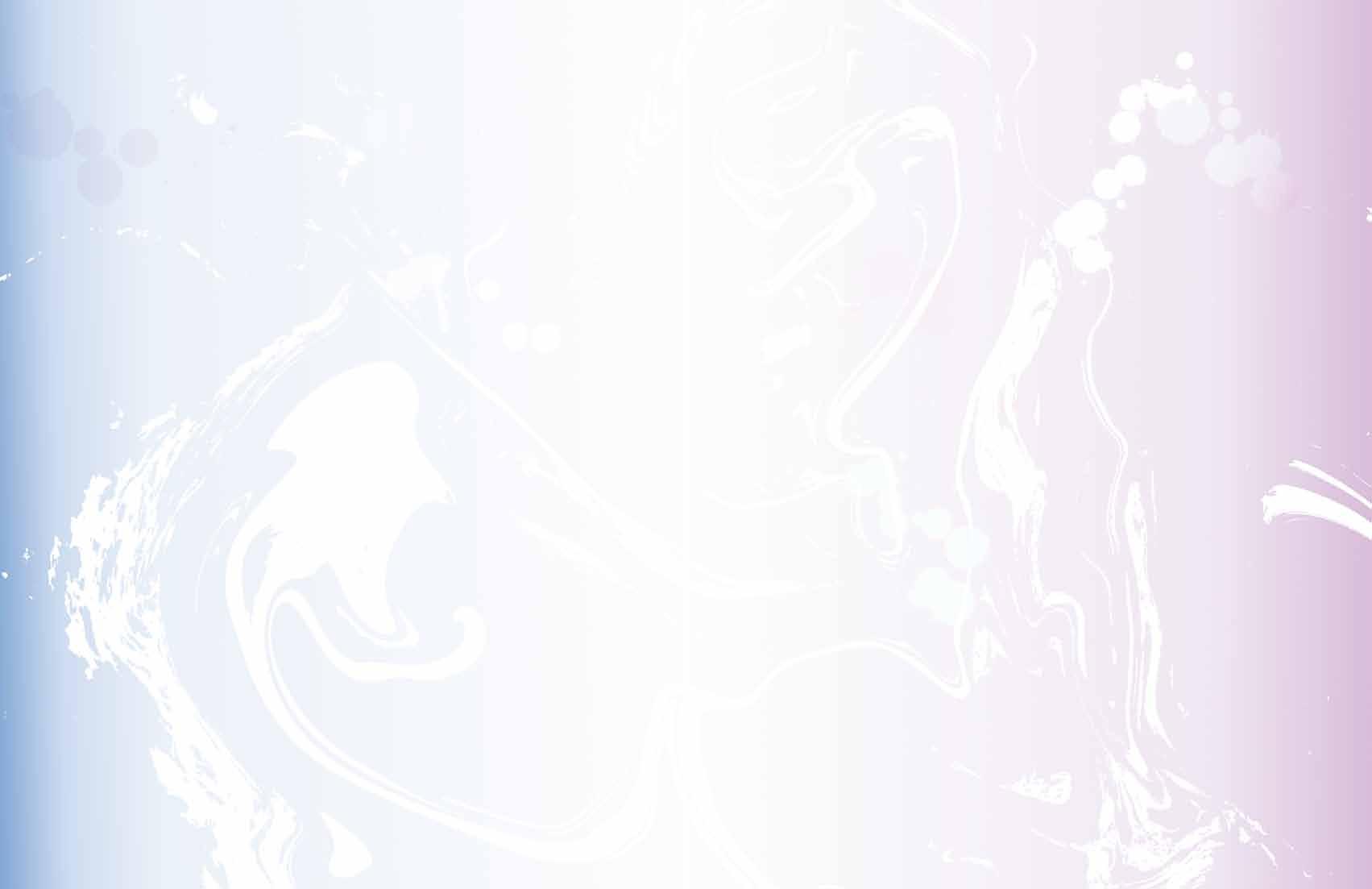
Priscilla Bellairs
Ann Grandmaison
Ginger Hurajt
Nick Sermuksnis
Linda Shea
Gail Stuart
Suzanne Van Wert
Beth Wilcoxson
Bronze Patrons (up to $19)
Lauren Boenitz James Lawrence Jessica Thistlewood
Bauby F’n Brown Joe Leblanc Todd the Handyman
Amy Callahan Marc Mannheimer Andrew Truiman
Sarah Cobb Robbie Marcin Loida Vargas
Alison Cody Andrew Morse Luilly Vasquez
Fhelton Cruz Kristen Nicholson
Joe Donlon Jairo Roque And numerous anonymous donations
Elise Felenchak Steve Russell
Conrad Fitton Susan Sanders Thanks so much for your patronage!
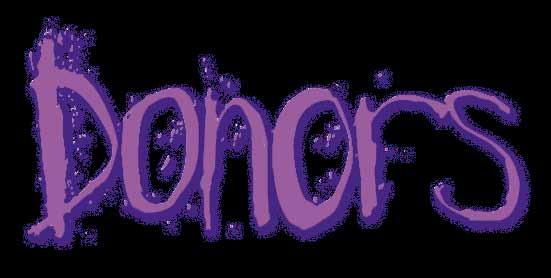
Mirna Garcia Colleen Sheehy
Rev. Joseph Goulet II Juan J. Sigaran
Lance Hidy Michelle Simon
Amanda Keeler Stephen Slaner
